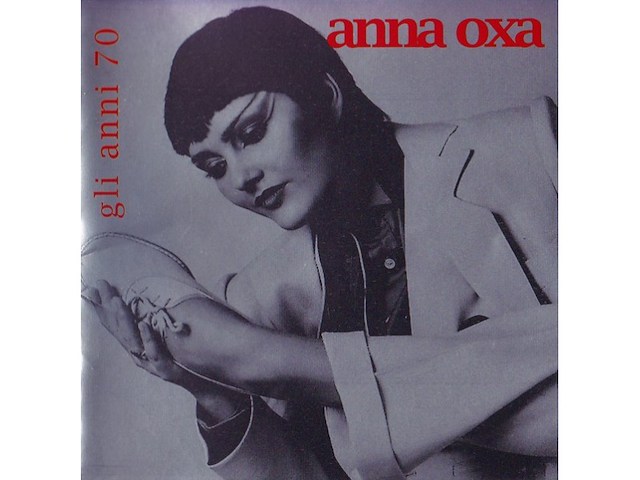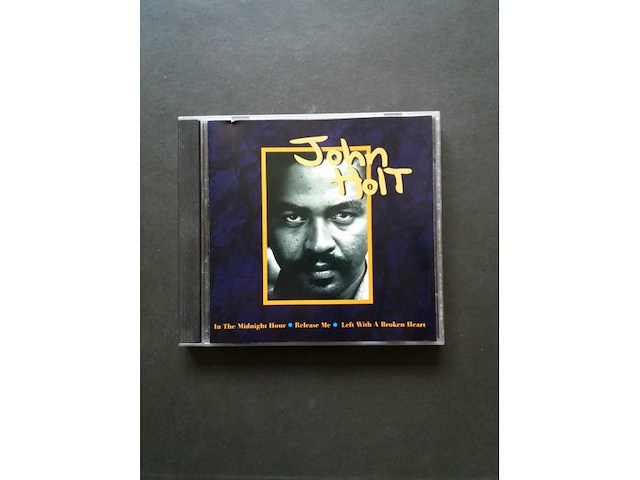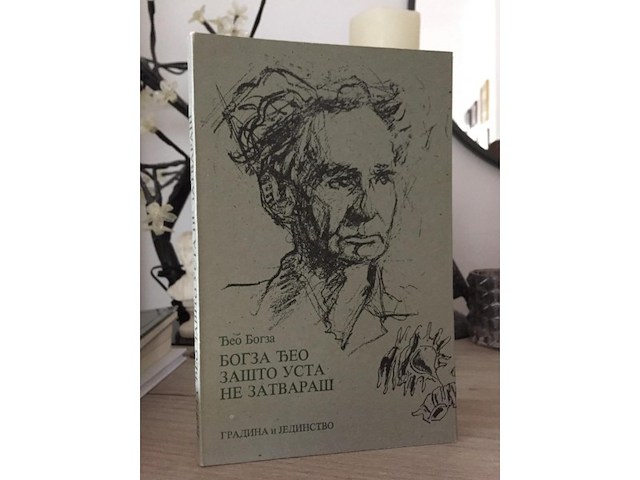Pratite promene cene putem maila
- Da bi dobijali obaveštenja o promeni cene potrebno je da kliknete Prati oglas dugme koje se nalazi na dnu svakog oglasa i unesete Vašu mail adresu.
101-124 od 124 rezultata
Prati pretragu "luciano"
Vi se opustite, Gogi će Vas obavestiti kad pronađe nove oglase za tražene ključne reči.
Gogi će vas obavestiti kada pronađe nove oglase.
Režim promene aktivan!
Upravo ste u režimu promene sačuvane pretrage za frazu .
Možete da promenite frazu ili filtere i sačuvate trenutno stanje
-
Kolekcionarstvo i umetnost chevron_right Muzika i film
disk: 5- omot: 5- Jose Carreras* – The Solo Collection Label: Slam Music – SLAM 024 Series: The Solo Collection – Format: CD, Compilation Country: Europe Released: 1995 Genre: Classical Style: Opera TracklistHide Credits 1 Che Gelida Manina (La Boheme) Composed By – Puccini* 2 Dovunque II Mondo (Madam Butterfly) Composed By – Puccini* 3 Recondita Armonia (Tosca) Composed By – Puccini* 4 E Lucevan Le Stelle (Tosca) Composed By – Puccini* 5 Questa O Quella (Rigoletto) Composed By – Verdi* 6 Ella Mi Fu Rapita Parmi Veder Le Grime Possente Amor Mi Chiama (Rigoletto) Composed By – Verdi* 7 Oh! Fede Negar Potessi Quando Le Sere Al Placido (Luisa Miller) Composed By – Verdi* 8 La Mia Letizia In Fondere (Ilombardi) Composed By – Verdi* 9 Igemisco (Requiem) Composed By – Verdi* 10 Ove So Io (Beatrice Di Tenda) Composed By – Bellini* Companies, etc. Phonographic Copyright (p) – Slam Records (6) Copyright (c) – Slam Records (6) Made By – CD Systems – 10389521 Notes Issued with a 4-page booklet. Printed on frontcover: The Classic Performances Printed on backcover: ℗ Slam Records, 1995 © Slam Records, 1995 Printed on booklet: The complete Solo Collection Luciano Pavarotti SLAM 022 Placido Domingo SLAM 023 Jose Carreras SLAM 024
-
Kolekcionarstvo i umetnost chevron_right Muzika i film
Celine Dion - Let`s Talk About Love Originalno izdanje sa bukletom. Knjizica ima 16 strana + jedan preklop. Made in Austria Ocuvanost CD: 4++ (u manjemm broju postoje veoma sitne povrsinske crtice i tackice, ne utice na rad, zvuk je odlican) Omot/knjizica: 5- (knjizica na jednom mestu veoma blago pritisnuta od drzaca omota) Spisak pesama: 01 The Reason 5:01 02 Immortality 4:11 03 Treat Her Like A Lady 4:05 04 Why Oh Why 4:51 05 Love Is On The Way 4:26 06 Tell Him [Duet With Barbra Streisand] 4:51 07 Amar Haciendo El Amor 4:10 08 When I Need You 4:12 09 Miles To Go (Before I Sleep) 4:39 10 Us 5:46 11 Just A Little Bit Of Love 4:06 12 My Heart Will Go On (Love Theme From `Titanic`) 4:40 13 Where Is The Love 4:55 14 Be The Man 4:39 15 I Hate You Then I Love You [Duet With Luciano Pavarotti] 4:43 16 Let`s Talk About Love 5:12 Stanje mozete videti na slikama. Tagovi: pop, ballad
-
Kolekcionarstvo i umetnost chevron_right Muzika i film
Celine Dion - Let`s Talk About Love Originalno izdanje sa bukletom. Knjizica ima 16 strana + jedan preklop. Made in USA Ocuvanost CD: 4+++ (dve male crte, u minimalnom broju sasvim sitne crtice, ne utice na rad) Knjizica: 4+++ (na tri mesta izuzetno blago pritisnuta od drzaca omota) Zadnji omot: 5 Na kutiji postoje tragovi koriscenja. Spisak pesama: 01 The Reason 5:01 02 Immortality 4:11 03 Treat Her Like A Lady 4:05 04 Why Oh Why 4:51 05 Love Is On The Way 4:26 06 Tell Him [Duet With Barbra Streisand] 4:51 07 Amar Haciendo El Amor 4:10 08 When I Need You 4:12 09 Miles To Go (Before I Sleep) 4:39 10 Us 5:46 11 Just A Little Bit Of Love 4:06 12 My Heart Will Go On (Love Theme From `Titanic`) 4:40 13 Where Is The Love 4:55 14 Be The Man 4:39 15 I Hate You Then I Love You [Duet With Luciano Pavarotti] 4:43 16 Let`s Talk About Love 5:12 Stanje mozete videti na slikama. Zanrovi: pop pvs2r9
-
Kolekcionarstvo i umetnost chevron_right Muzika i film
NOV , NESLUSAN 1 Oltar Bass – Nenad Stefanović Japanac* Cello – Jasmina Pajević* Drums – Srba* Lyrics By – Đ. Balašević* Percussion – Ognjen Radivojević* Tin Whistle – Dejan Popin Violin – Ana Đokić 4:30 2 Uvek Te Đavo Nađe Lakše Nego Ja Lyrics By – Đ. Balašević* Percussion – Uroš Šećerov 4:03 3 Te Noći Smo Se Potukli Zbog Nje Saxophone – Ljuba Paunić* 4:44 4 Bog Vidi Sve Backing Vocals [Uncredited] – Olga Vulović Percussion – Uroš Šećerov Programmed By – Goran Stevanović Saxophone – Ljuba Paunić* 4:15 5 Nemirne Noći Backing Vocals [Uncredited] – Olga Vulović Drums – Peter Boyle (2) Piano – Ludwig* Strings – Korto Strings Quartet Strings [Additional] – Slobodan Marković Vocals, Backing Vocals – Tony Cetinski 5:00 6 Kako Si Lepa Backing Vocals – Malcolm Bridger Guitar – Tibby Flora Guitar [Solo, Electric] – Steve Taylor (18) Lyrics By – M. Bajagić* Saxophone – Ljuba Paunić* Strings, Organ [Hammond] – Kiki* Trombone – Ivan Ilić Trumpet – Marko Đorđević Vocals – Momčilo Bajagić Bajaga* 3:56 7 Daleko Bilo Backing Vocals – Iva Nedić*, Jovana Backović, Ljubica Babec Bass [Synth Bass] – Kiki* Drums – Dragoljub Đuričić Guitar [Solo, Electric] – Branko Trivić Keyboards – Laza Ristovski Lyrics By – M. Tucaković* Percussion – Taviani Brothers, Uroš Šećerov Violin [Electric] – Filip Pat 4:30 8 Nemam Prava Na To Arranged By [Strings] – Kiki* 4:14 9 Mesec Na Vratima Strings – Kiki* 4:09 Bonus Tracks: 10 Strawberry Wine Bass – Cvika* Drums – Srba* Featuring – Van Gogh (2) Guitar – Vlada Negovanović* Guitar [Solo, Electric] – Zvonimir Đukić Đule* 3:16 11 Lies Guitar – Vlada Negovanović* 3:47 12 Beautiful Lady 3:55 13 Only The Brave Lyrics By – Vlada Mrvić 4:30 Recorded At – Studio Kikija Lesendrića Recorded At – Studio Pink Recorded At – Sing Sing Studios Mixed At – Serena Engineering Studio Mastered At – Serena Engineering Studio Acoustic Guitar, Electric Guitar – Paja Vučković* (tracks: 1 to 6, 8 to 11) Arranged By – M. Dinkić* (tracks: 1, 2, 3, 4, 6, 8, 11, 12, 13), Z. Lesendrić* (tracks: 1 to 13), Z. Đukić* (tracks: 10) Backing Vocals – Leontina Vukomanović* (tracks: 1, 2, 4, 9 to 11), Tijana Dapčević (tracks: 1, 2, 4, 9 to 11) Bass – Dragan Ivanović (tracks: 2 to 6, 8, 9, 11) Drums – Marko Kuzmanović (tracks: 2 to 4, 8, 9, 11) Engineer [Assistant] – Andrea Amore Keyboards, Piano – Bojan Vasić (2) (tracks: 1 to 4, 7, 8, 11) Lyrics By – M. Bridger* (tracks: 10, 11, 12), M. Dinkić* (tracks: 8), Z. Lesendrić* (tracks: 3, 4, 5, 8, 9) Mastered By – Robert Barillari* Mixed By – Luciano Serena Music By – M. Dinkić* (tracks: 1, 2, 3, 4, 8, 11, 13), Z. Lesendrić* (tracks: 3, 5, 6, 7, 8, 9, 10, 11, 12) Producer – Luciano Serena, Kiki Lesendrić* Recorded By – Kiki Lesendrić* Recorded By [Additional] – Goran Šimpraga Vocals, Backing Vocals, Electric Guitar – Kiki* Recorded in period April 2007. - May 2008. at Kiki Lesendrić`s Studio, Beograd. Additional recording at Studio PINK, Beograd and Studio Sing Sing, Melbourne. Mixed and mastered at Serena Engineering Studio, Bologna, Italy.
-
Kolekcionarstvo i umetnost chevron_right Muzika i film
Made in Austria. Booklet na 16 strana. Booklet: 5- CD: 5- Label: Columbia – COL 489159 2, Columbia – 489159 2 Format: CD, Album Country: Europe Released: Nov 14, 1997 Genre: Electronic, Rock, Funk / Soul, Pop Style: Ballad, Soft Rock, Downtempo, Contemporary R&B, Latin, Theme Songs from the Last Century is the fourth studio album by the English singer-songwriter George Michael, released on 6 December 1999 by Aegean Records and Virgin Records. Produced by Phil Ramone and George Michael, it was his only album of cover versions. It consists mainly of old jazz standards plus new interpretations of more recent popular songs, such as `Roxanne` by The Police and `Miss Sarajevo` by U2[nb 1] and Brian Eno with Luciano Pavarotti. `Roxanne` was released as a single in other countries except the United Kingdom. Let`s Talk About Love is the fifth English-language and fifteenth studio album by Canadian singer Celine Dion, released on 14 November 1997, by Columbia and Epic Records. The follow-up to the commercially successful Falling into You (1996), Let`s Talk About Love showed a further progression of Dion`s music. Throughout the project, she collaborated with Barbra Streisand, the Bee Gees, Luciano Pavarotti, Carole King, George Martin, Diana King, Brownstone, Corey Hart, and her previous producers: David Foster, Ric Wake, Walter Afanasieff, Humberto Gatica, and Jim Steinman. The album includes Dion`s biggest hit, `My Heart Will Go On`. Written by James Horner and Will Jennings and serving as the love theme for James Cameron`s 1997 blockbuster film, Titanic, `My Heart Will Go On` topped the charts around the world and is considered to be Dion`s signature song. Let`s Talk About Love and its songs won many awards around the world. `My Heart Will Go On` won the Grammy Award for Record of the Year, Song of the Year, Best Female Pop Vocal Performance and Best Song Written Specifically for a Motion Picture or for Television. In addition, the album was nominated for Best Pop Vocal Album and `Tell Him` for Best Pop Collaboration with Vocals. Let`s Talk About Love became one of the best-selling albums in history, with sales of over 31 million copies worldwide.[1] The album also topped the record charts around the world, including the United States, Canada, the United Kingdom, France, Australia and many more. It became one of the best-selling albums of 1997 and 1998 in various countries, and also one of the top-selling albums of the decade. It was certified Diamond, Multi-Platinum, Platinum and Gold around the world. Various singles were released, depending on the country. In addition to the major success of `My Heart Will Go On`, other singles included `Tell Him`, `Be the Man`, `The Reason`, `To Love You More`, `Immortality`, `Miles to Go (Before I Sleep)` and `Treat Her Like a Lady`.
-
Kolekcionarstvo i umetnost chevron_right Muzika i film
OMOT 5 CD 5 NOV NESLUŠAN Various – Sanremo 2000 Label: EMI – 7243 52541324 Format: CD, Compilation Country: Italy Released: 2000 Genre: Pop Style: Europop, Chanson, Vocal Tracklist 1 Davide De Marinis– Chiedi Quello Che Vuoi 4:00 2 Carmen Consoli– In Bianco E Nero 3:45 3 Jenny B*– Semplice Sai 4:02 4 Max Gazzè– Il Timido Ubriaco 3:48 5 B.A.U. (3)– Ogni Ora 4:00 6 Nava* / Minghi*– Futuro Come Te 4:17 7 Tiromancino– Strade 3:40 8 Marjorie Biondo– Le Margherite 4:04 9 Erredieffe– Ognuno Per Sé 4:11 10 Subsonica– Tutti I Miei Sbagli 4:03 11 Enrico Sognato– E Io Ci Penso Ancora 3:40 12 Avion Travel– Sentimento 3:57 13 Claudio Fiori– Fai La Tua Vita 4:12 14 Alessio Bonomo– La Croce 2:41 15 Gerardina Trovato– Gechi E Vampiri 2:55 16 Andrea Mazzacavallo– Nord - Est 3:50 17 Luciano Pavarotti– Passione 3:46 18 Noa– Beautiful That Way 3:33 19 Goran Bregovich*– Mesecina / Moonlight 3:59 Companies, etc. Marketed By – EMI Distributed By – EMI Phonographic Copyright ℗ – EMI Music Italy S.p.A. Copyright © – EMI Music Italy S.p.A. Credits Graphic Design, Photography By [Foto Interne] – Fabio Berruti Mastered By – Dario Bontempi Notes Track 17 is a Bonus Track. ℗ © 2000 EMI Music Italy S.p.A. Made in Italy. Printed in Italy. Barcode and Other Identifiers Barcode (Text): 0 724352 541324
-
Kolekcionarstvo i umetnost chevron_right Muzika i film
Zucchero - Zu & Co. Originalno izdanje sa bukletom. Knjizica ima 16 strana. Made in EU Ocuvanost CD: 5 Omot/knjizica: 5 Nekoliko naprslina na zadnjoj strani kutije. Spisak pesama: 01 Zucchero With Miles Davis - Dune Mosse 5:44 02 Zucchero With Sting - Muoio Per Te 3:22 03 Zucchero With Vanessa Carlton - Everybody`s Got To Learn Sometime [Featuring Haylie Ecker] 4:03 04 Zucchero With Mousse T. - Mama Get Real 3:20 05 Zucchero With Macy Gray - Like The Sun [Featuring Jeff Beck] 3:56 06 Zucchero With Maná - Baila Morena 4:06 07 Zucchero With John Lee Hooker - I Lay Down 4:56 08 Zucchero With Sheryl Crow - Blue 4:48 09 Zucchero With Dolores O`Riordan - Pure Love 3:27 10 Zucchero With Eric Clapton - A Wonderful World 4:35 11 Zucchero With Tom Jones - Pippo - Nasty Guy 3:53 12 Zucchero With B.B. King - Hey Man - Sing A Song 4:37 13 Zucchero With Ronan Keating - The Flight 4:48 14 Zucchero With Cheb Mami - Così Celeste 4:42 15 Zucchero With Solomon Burke - Diavolo In Me - A Devil In Me 4:00 16 Zucchero With Paul Young - Senza Una Donna - Without A Woman 4:30 17 Zucchero With Brian May - Il Mare... 3:56 18 Zucchero With Luciano Pavarotti & Andrea Bocelli - Miserere 4:14 Stanje mozete videti na slikama. Zanrovi: rock, pop gpr2
-
Kolekcionarstvo i umetnost chevron_right Muzika i film
The Rebirth Of Cool Seven Originalno dvostruko izdanje sa bukletom. Knjizica ima 12 strana. Made in Germany Ocuvanost CD1: 5- (dve sitne crtice, ne utice na rad) CD2: 5 Omot/knjizica: 5 Naprslina na prednjoj strani kutije. Spisak pesama: CD1 01 Abstract Truth - Get Another Plan (Extended Mix) 6:21 02 Ian O`Brien - Monkey Jazz 7:03 03 Blaze - My Beat 5:21 04 Universal Being - Size Of An Elephant 6:37 05 Spacer - Contrazoom 5:57 06 Underwolves - The Redeemer 6:47 07 DJ Skitz Alongside Roots Manuva - Where My Mind Is At 4:42 08 New Sector Movements - My History/Feel The Spirit (Afro History Part 11) 8:55 09 Kerri & Joe - Escravos De Jo 7:24 10 Dean Fraser - African Elation 8:51 CD2 01 The Amalgamation Of Soundz - Tears For The Yazd 6:37 02 Karime Kendra - Chemical Imbalance (DJ Die Mix) 6:00 03 State Of Bengal - Elephant Ride 6:23 04 Luciano - Life (Da Lata Mix) 5:42 05 Faze Action - Plans & Designs 7:32 06 Tala Quintet Feat. The Vocals Of Manorama Prasad - Na-Da 6:28 07 Bill Riley - In At The Deep End 6:31 08 Roni Size - Ballet Dance 6:41 09 Fused Up - Impressions 8:39 10 The Mighty Strinth - What Is It? 10:11 Stanje mozete videti na slikama. Zanrovi: electronic, future jazz, drum n bass pvs3r7
-
Kolekcionarstvo i umetnost chevron_right Muzika i film
Zucchero - Zu & Co. Originalno izdanje sa bukletom. Knjizica ima 16 strana. Made in EU Ocuvanost CD: 4+++ (par malih crtica, ne utice na rad) Omot/knjizica: 5 Nekoliko naprslina na zadnjoj strani kutije. Spisak pesama: 01 Zucchero With Miles Davis - Dune Mosse 5:44 02 Zucchero With Sting - Muoio Per Te 3:22 03 Zucchero With Vanessa Carlton - Everybody`s Got To Learn Sometime [Featuring Haylie Ecker] 4:03 04 Zucchero With Mousse T. - Mama Get Real 3:20 05 Zucchero With Macy Gray - Like The Sun [Featuring Jeff Beck] 3:56 06 Zucchero With Maná - Baila Morena 4:06 07 Zucchero With John Lee Hooker - I Lay Down 4:56 08 Zucchero With Sheryl Crow - Blue 4:48 09 Zucchero With Dolores O`Riordan - Pure Love 3:27 10 Zucchero With Eric Clapton - A Wonderful World 4:35 11 Zucchero With Tom Jones - Pippo - Nasty Guy 3:53 12 Zucchero With B.B. King - Hey Man - Sing A Song 4:37 13 Zucchero With Ronan Keating - The Flight 4:48 14 Zucchero With Cheb Mami - Così Celeste 4:42 15 Zucchero With Solomon Burke - Diavolo In Me - A Devil In Me 4:00 16 Zucchero With Paul Young - Senza Una Donna - Without A Woman 4:30 17 Zucchero With Brian May - Il Mare... 3:56 18 Zucchero With Luciano Pavarotti & Andrea Bocelli - Miserere 4:14 Stanje mozete videti na slikama. Zanrovi: rock, pop pmsr3
-
Kolekcionarstvo i umetnost chevron_right Muzika i film
Booklet 5 / CD 4- Dubrovački Trubaduri – Pusti Da Ti Leut Svira Label: Taped Pictures – CD 2188 Format: CD, Compilation, Reissue Country: Slovenia Released: 2002 Genre: Rock, Pop, Folk, World, & Country Style: Vocal, Ballad, Beat, Chanson, Europop, Folk Rock, Pop Rock, Schlager Tracklist 1 Pusti Da Ti Leut Svira 3:25 2 Jedan Dan 2:28 3 Noćna Muzika 3:40 4 Linđo 3:11 5 Marijana 2:50 6 Dok Palme Njišu Grane 3:28 7 Trubadurska Serenada 2:47 8 Pjesma Puni Život Moj 2:20 9 Dalmatinski Lero 2:32 10 Ona I Prijatelj Moj 3:12 11 Anđele Moj 3:35 12 Luda Mladost 2:48 13 Kad Se Jednom Rastanemo 2:46 14 Shalom Judit 4:05 15 Ljuven Zov 2:18 16 Sva U Crvenom 3:00 17 Lipa Zavidnost 3:10 18 Serenada Dubrovniku 3:43 19 Moja Je Djevojka 3:09 20 Djevojka Mlada 2:20 21 Mi Prepuni Smo Ljubavi 2:08 22 Kako Djeca Spavaju 3:20 23 Znam Da Ima Jedna Staza 4:45 24 Oj, Djevojko, Dušo Moja 2:20 Credits Arranged By – Stipica Kalogjera (tracks: 2) Arranged By, Producer – Đelo Jusić Co-producer, Bass – Marko Brešković Composed By, Mandolin, Guitar – Djelo Jusić* Drums – Ladislav Pađen* Flute – Luciano Capurso Keyboards – Slobodan Bobo Berdović* Vocals – Hamo Hajdarhodžić Notes Includes a booklet with liner notes. Barcode and Other Identifiers Barcode: 3 831020 721883
-
Kolekcionarstvo i umetnost chevron_right Muzika i film
Original, made in EU Knjizica od 20str. Odlicno ocuvano Sedmi studijski album na kom gostuju The New Orleans Gospel Choir, Clarence Clemons, David Sancious, Jeff Beck (on `Papà perche`), Sheila E. (on `Alleluja`, lyrics written by Italian rapper Jovanotti), and Francesco De Gregori who wrote the lyrics of `Pane e sale`. Spirito DiVino is the seventh studio album by the Italian blues rock singer-songwriter Zucchero Fornaciari, released on 27 May 1995 by Polydor Records. The album was also released in partial Spanish language edition,[1] and English edition titled Spirito DiVino: Stray Cat in a Mad Dog City. Polydor – 529 987-2 Format: CD, Album Country: Italy Released: 1995 Genre: Rock Style: Soft Rock, Pop Rock, Blues Rock Tracklist Hide Credits 1 Voodoo Voodoo Lyrics By – Zucchero Fornaciari* Music By – Luciano Luisi, Zucchero Fornaciari* 4:10 2 Datemi Una Pompa Written-By – Zucchero Fornaciari* 4:14 3 O.L.S.M.M. Written-By – Zucchero Fornaciari* 3:32 4 Pane E Sale Lyrics By – Francesco De Gregori Music By – Zucchero Fornaciari* 5:12 5 X Colpa Di Chi? Written-By – Zucchero Fornaciari* 3:58 6 Il Volo Written-By – Zucchero Fornaciari* 5:31 7 Senza Rimorso Lyrics By – Alberto Salerno Music By – Zucchero Fornaciari* 4:36 8 Papà Perché Written-By – Zucchero Fornaciari* 4:00 9 Così Celeste Written-By – Zucchero Fornaciari* 4:50 10 Alleluja Lyrics By – Jovanotti Music By – Zucchero Fornaciari* 4:45 Bonus Track 11 Feels Like A Woman Lyrics By – Francesco De Gregori, Tena Clark Music By – Zucchero Fornaciari* 5:13 Companies, etc. Phonographic Copyright (p) – PolyGram Italia S.R.L Copyright (c) – PolyGram Italia S.R.L Made By – PMDC, France
-
Kolekcionarstvo i umetnost chevron_right Muzika i film
Original, Made in EU Novo, u celofanu Bajofondo Tango Club Real Name: Gustavo Santaolalla, Juan Campodónico, Luciano Supervielle, Javier Casalla, Martín Ferrés, Gabriel Casacuberta, Adrián Sosa, Verónica Loza Profile: Bajofondo is a South American band of musicians from Argentina and Uruguay. Originally called `Bajofondo Tango Club`, they changed their name to simply `Bajofondo` as they felt their style had broadened beyond just Tango and should be considered `contemporary music from the Río de la Plata`. Gustavo Santaolalla: guitar, percussion, vocals, backup vocals Juan Campodónico: programming, beats, samples, guitar Luciano Supervielle: piano, keyboards, turntable Javier Casalla: violin Martín Ferrés: bandoneon Gabriel Casacuberta: upright bass, electric bass Adrían Sosa: drums Verónica Loza: VJ, vocals Bajofondo* – Mar Dulce Label: Surco – 0602517429321, Vibra – 0602517429321, Universal – 0602517429321 Format: CD, Album, Digipak Country: UK & Europe Released: 04 Sep 2007 Genre: Electronic, Latin Style: Tango, Downtempo, Breaks TracklistHide Credits 1 –Bajofondo* Grand Guignol Arranged By, Directed By [Strings] – Alejandro Terán Written-By – C. García*, G. Santaolalla*, J. Campodónico* 5:05 2 –Bajofondo* Cristal Arranged By – Terán*, Casalla* Written-By – G. Santaolalla*, J. Campodónico* 5:27 3 –Bajofondo* featuring Santullo Ya No Duele Arranged By, Directed By [Strings] – Alejandro Terán Programmed By – Sebastián Peralta Vocals [Featuring] – Fernando Santullo* Written-By – J. Campodónico*, F. Santullo*, S. Peralta* 3:43 4 –Bajofondo* featuring Juan Subirá Hoy Arranged By, Directed By [Strings] – Alejandro Terán Bass [Electric] – Gabriel Casacuberta Vocals [Featuring] – Juan Subirá Written-By – G. Santaolalla*, H. García*, J. Subirá* 5:15 5 –Bajofondo* featuring Ryota Komatsu Pa` Bailar Arranged By, Directed By [Strings] – Alejandro Terán Bandoneon [Featuring] – Ryota Komatsu Written-By – A. Tagle Lara*, B. Tagle Lara*, G. Santaolalla*, J. Campodónico* Written-By [Variation] – Casalla* 3:52 6 –Bajofondo* Pulmón Arranged By, Directed By [Strings] – Alejandro Terán Written-By – G. Casacuberta*, G. Santaolalla*, J. Casalla* 3:22 7 –Bajofondo* featuring Elvis Costello Fairly Right Arranged By, Directed By [Strings] – Alejandro Terán Vocals [Featuring] – Elvis Costello Written-By – G. Santaolalla* 6:01 8 –Bajofondo* featuring Gustavo Cerati El Mareo Arranged By, Directed By [Strings] – Alejandro Terán Guitar – Juan Campodónico Programmed By – Omar (11) Vocals [Featuring] – Gustavo Cerati Written-By – J. Campodónico*, F. Santullo* 4:35 9 –Bajofondo* featuring Mala Rodríguez El Andén Arranged By, Directed By [Strings] – Alejandro Terán Vocals [Featuring] – Mala Rodriguez* Written-By – J. Casalla*, M. Rodríguez*, M. Ferres* 3:50 10 –Bajofondo* Infiltrado Arranged By, Directed By [Strings] – Alejandro Terán Programmed By – Anibal Kerpel Written-By – A. Kerpel*, J. Campodónico* 3:38 11 –Bajofondo* Borges Y Paraguay Arranged By, Directed By [Strings] – Alejandro Terán Programmed By, Keyboards, Vocals – Daniel Martín Written-By – D. Martín*, G. Santaolalla* 4:32 12 –Bajofondo* Tuve Sol Arranged By, Directed By [Strings] – Alejandro Terán Vocals – Veronica Loza Written-By – G. Santaolalla*, J. Casalla*, J. Campodónico*, V. Loza* 3:54 13 –Bajofondo* No Pregunto Cuantos Son Arranged By, Directed By [Strings] – Alejandro Terán Organ [Hammond] – Anibal Kerpel Programmed By, Keyboards, Vocals – Daniel Martín Written-By – D. Martín*, E. Rovira*, G. Santaolalla* 4:55 14 –Bajofondo* featuring Nelly Furtado Slippery Sidewalks Arranged By, Directed By [Strings] – Alejandro Terán Vocals [Featuring] – Nelly Furtado Written-By – G. Santaolalla*, J. Casanova*, L. Supervielle* 3:34 15 –Bajofondo* Zitarrosa Arranged By, Directed By [Strings] – Alejandro Terán Guitar – Juan Campodónico Guitar [Spanish Guitars] – Toto Méndez Programmed By – Alejandro Tuana Written-By – A. Tuana*, J. Campodónico* 4:04 16 –Bajofondo* featuring Lágrima Ríos Chiquilines Arranged By – Terán*, Supervielle* Vocals [Featuring] – Lágrima Ríos Written-By – G. Santaolalla*, H. Correa*, L. Supervielle*, O. Falero Frías* 5:47 Companies, etc. Phonographic Copyright (p) – Surco Records J.V. Copyright (c) – Surco Records J.V. Manufactured By – Universal International Music B.V. Distributed By – Universal International Music B.V. Credits Bandoneon – Martin Ferres Cello – Julián Gándara Co-producer – Anibal Kerpel Double Bass – Gabriel Casacuberta Drums – Adrian Sosa Edited By [Digital] – Anibal Kerpel, Julio Berta, Riki Musso Engineer [Assistant In Ion] – Javier Mazzarol Engineer [Recording - Additional] – Dror Mohar, Eduardo Pereyra (2), Sergio Delgado (3) Engineer [Recording] – Anibal Kerpel, Jorge `Portugues` Da Silva, Julio Berta Graphic Design – Carolina Larrea Guitar, Percussion, Vocals – Gustavo Santaolalla Mastered By – Tom Baker (3) Mixed By – Anibal Kerpel, Gustavo Santaolalla, Juan Campodónico, Julio Berta Performer [Vj] – Veronica Loza Photography By – Gustavo Santaolalla Piano, Keyboards, Turntables [Turntable] – Luciano Supervielle Producer – Gustavo Santaolalla, Juan Campodónico Programmed By, Effects [Beats], Effects [Samples] – Juan Campodónico Violin – Alejandro Terán, Damián Bolotín, Guadalupe Tobarías, Javier Casalla, Marta Roca Alonso, Sebastián Prusak Notes El Mareo (track 8) contains a fragment of Encontrar (written by Ignacio Benedetti, Pablo Bonilla and Juan Campodónico) from the album Omar, courtesy of Bo! Tracks. Zitarrosa (track 15) contains recordings of Alfredo Zitarrosa`s voice. Ya No Duele (track 3) contains samples of De Mi Ciudad by Dúo Araza. Chiquilines (track 16) contains a fragment of Vieja Viola by Lágrima Ríos from the album Café De Los Maestros. Recorded at ION (Buenos Aires), La Casa (Los Angeles), campo.rec (Montevideo), Tio Riki (Montevideo), Electric Lady Studios (New York), Sony Studios (Tokyo), Euram Studios (Madrid) and El Cielito (Buenos Aires). Mixed at La Casa (Los Angeles) and in campo.rec (Montevideo). Mastered at Precision Mastering. Publishing: G. Santaolalla: Vasudeva / Universal Music Publishing. J. Campodónico, L. Supervielle, J. Casalla, A. Kerpel, G. Casacuberta, M. Ferres, D. Martin y F. Santullo: Surco Music / Universal Music Publishing. B. y A. Tagle Lara: Editorial Perrotti. H. Correa, O. Frias, E. Rovira: Warner Chappell. C. Garcia: EMI Melograf. ℗ & © 2007 Surco Records J.V. Made in the EU Barcode and Other Identifiers Barcode (Printed): 6 02517 42932 1 Barcode (Scanned): 602517429321 Label Code: LC 00699 Matrix / Runout: (Universal Logo x4) 06025 174 293-2 01 * 51931720 Matrix / Runout (Inner Ring): Made in Germany by EDC B Mastering SID Code: IFPI LV26 Mould SID Code: IFPI 0147 Rights Society: BIEM / SABAM
-
Kolekcionarstvo i umetnost chevron_right Muzika i film
Napukla kutija/booklet 5 / CD 5- Passengers – Original Soundtracks 1 Label: Island Records – 524 166-2, Island Records – CID 8043 Format: CD, Album Country: Europe Released: 06 Nov 1995 Genre: Electronic, Rock, Stage & Screen Style: Alternative Rock, Soundtrack, Pop Rock, Experimental, Ambient TracklistHide Credits 1 United Colours Saxophone – David Herbert (2) Synthesizer [Rhythm] – Larry Mullen Jnr* 5:31 2 Slug 4:41 3 Your Blue Room Narrator – Adam Clayton Organ – The Edge 5:28 4 Always Forever Now Arranged By [Strings] – Paul Barrett Sequenced By [Sequencer] – Des Broadbery 6:24 5 A Different Kind Of Blue Vocals – Brian Eno 2:02 6 Beach Sequence Piano – Bono 3:25 7 Miss Sarajevo Arranged By [Strings] – Craig Armstrong Other [Italian Translation] – Anna Mazzarotto Tenor Vocals – Luciano Pavarotti 5:41 8 Ito Okashi Vocals, Written-By [Co-writer] – Holi (2) 3:25 9 One Minute Warning Sequenced By [Rhythm Sequence] – Larry Mullen Jnr* Synthesizer [Additional] – Holger Zschenderlein Voice – Holi (2) 4:40 10 Corpse (These Chains Are Way Too Long) Saxophone – David Herbert (2) Vocals – The Edge 3:35 11 Elvis Ate America Engineer, Vocals [Call Vocal], Recorded By [Rhythm Track], Written-By [Co-writer] – Howie B* 2:59 12 Plot 180 3:41 13 Theme From The Swan 3:24 14 Theme From Let`s Go Native 3:07 Companies, etc. Phonographic Copyright (p) – PolyGram International Music B.V. Copyright (c) – PolyGram International Music B.V. Published By – Blue Mountain Music Published By – Mother Music Published By – Taiyo Music Uni. Published By – PolyGram International Music Publishing B.V. Published By – Opal Music Published By – Upala Music Inc. Licensed To – Island Records Ltd. Recorded At – Westside Studios Recorded At – Hanover Quay Studios Glass Mastered At – PMDC, France Credits Art Direction [Sleeve & Concept] – Brian Eno, Cally Bass – Adam Clayton Chorus, Sequenced By, Synthesizer, Other [Strategies, Treatments] – Brian Eno Coordinator [Studio Co-ordinator] – David Herbert (2) Design [Apple Mapping] – Rob Crane Design [Cutting Floor] – Richard Baker (14) Design [Front Cover Illustration] – Theodor Rotrekl Drums, Percussion – Larry Mullen Jnr* Edited By – Brian Eno, Rob Kirwan Edited By [Digital] – Stewart Whitmore Engineer – Danton Supple (tracks: 1 to 10, 12 to 14) Engineer [Assistant At Metropolis] – Ruadhri Cushnan Engineer [Assistant To Howie B] – Fiach Cooling Engineer [Assistant] – Rob Kirwan Featuring [Extra Passengers] – Holi (2), Howie B*, Luciano Pavarotti Guitar, Chorus [Chorus Voices] – The Edge Liner Notes – Ben O`Rian, C.S.J. Bofop* Management [Album Production Manager] – Anne-Louise Kelly Management [Assistant Album Production Manager] – Candida Bottaci Management [Manager Of U2] – Paul McGuinness (2) Mastered By – Arnie Acosta Mixed By – Brian Eno, Howie B* Music By – Adam Clayton, Bono, Brian Eno, Larry Mullen Jnr.*, The Edge Recorded By [Assistant On Original Recordings] – Lee Philips Scratches, Other [Treatments] – Howie B* Technician [Post Production And Supervision] – Cheryl Engels Technician [Studio Crew] – Dallas Schoo, Dennis Sheehan, Des Broadbery, Fraser McAlister, Rab McAllister, Rob Kirwan, Sam O`Sullivan, Stuart Morgan Vocals, Guitar – Bono Notes Front Cover Illustration c/o Aura•Pont, Prague Includes a 10 panel Insert which features front cover art, descriptions of the films, credits and artwork. Original Soundtracks 1: 1: From The Film `United Colours Of Plutonium` 2: From `Slug` (Peter Von Heineken, Germany) 3: From `Par-Delà Les Nuages/Beyond The Clouds` (Michelangelo Antonioni, Wim Wenders, Italy) 4: End Titles From `Always Forever Now` (John Leng Qi, Hong Kong) 5: From `An Ordinary Day` (Lurlene Clewman, USA) 6: From From `Par-Delà Les Nuages/Beyond The Clouds` (Michelangelo Antonioni, Wim Wenders, Italy) 7: From The Film `Miss Sarajevo` (Bill Carter, USA) 8: From `Ito Okashi/Something Beautiful` (Rita Takashina, Fukushima) 9: From `Ghost In The Shell` (Mamuri Oshii, Japan) 10: From `Gibigiane/Reflections` (Aldo Gianniccolo, Milan) 11: From The Film `Elvis Ate America` (Jeff Koons, New York) 12: From `Hypnotize (Love Me `Til Dawn)` (Peter Sedgeley, London) 13: From `The Swan` (Joseph Mamat, Hungary) 14: From `Let`s Go Native` (Rodger Vuijkers, South Africa, Unreleased) Recorded and mixed at Westside Studios (London) and Hanover, Dublin. Thanks to Robbie Adams, Marius De Vries, Nick Angel, Gavin Friday, Candice Hanson, Osmond J. Kilkenny III Holi (2) appears courtesy Resurgence and Funhouse Inc., Japan. Howie B is published by Sony Music. Luciano Pavarotti appears courtesy of The Decca Recording Company Limited. Brian Eno`s company is Opal Ltd, London. Thank you to Anthea Norman-Taylor and James Topham All tracks published by Blue Mountain Music (UK), Mother Music (Rep. Of Ireland), Taiyo Music Uni. (Japan) and PolyGram International Music Publishing B.V. (R.O.W.) and Opal Music, except in North America by Upala Music Inc./BMI. ℗ 1995 PolyGram International Music B.V. © 1995 PolyGram International Music B.V. The coypright in this sound recording and artwork is owned by PolyGram International Music B.V. and is exclusively licensed to Island Records Ltd in the UK. Barcode and Other Identifiers Barcode (Text): 7 31452 41662 9 Barcode (scanned): 731452416629 Label Code: LC0407 Price Code: PY 811 Rights Society: BIEM/STEMRA Mastering SID Code (Variant 1 to 10): IFPI L004 Matrix / Runout (Variant 1): PMDC FRANCE 524 166_2 90 L7 Mould SID Code (Variant 1): IFPI 0247 Matrix / Runout (Variant 2): PMDC FRANCE 524 166_2 90 L7 Mould SID Code (Variant 2): IFPI 0204 Matrix / Runout (Variant 3): PMDC FRANCE 524 166_2 90 L7 1A-D Mould SID Code (Variant 3): IFPI 0204 Matrix / Runout (Variant 4): PMDC FRANCE 524 166_2 90 L7 1A * A Mould SID Code (Variant 4): IFPI 0262 Matrix / Runout (Variant 5): PMDC FRANCE 524 166_2 90 L7 1A * K Mould SID Code (Variant 5): IFPI 0261 Matrix / Runout (Variant 6): PMDC FRANCE 524 166_2 90 L7 1A-E Mould SID Code (Variant 6): IFPI 0204 Matrix / Runout (Variant 7): PMDC FRANCE 524 166_2 90 L7 1A.N Mould SID Code (Variant 7): IFPI 0261 Matrix / Runout (variant 8): PMDC FRANCE 524 166_2 90 L7 1A-J Mould SID Code (Variant 8): IFPI 0211 Matrix / Runout (Variant 9): PMDC FRANCE 524 166_2 90 L7 1A * L Mould SID Code (Variant 9): IFPI 0204 Matrix / Runout (Variant 10): PDMC FRANCE 524 166_2 90 L7 1BB Mould SID Code (Variant 10): IFPI 0243
Nova knjiga, necitana, nema posvete. Mišel Fuko i politika - Lusijano Noseto Izdavač: Karpos Godina izdanja: 2022 Broj strana: 250 Format: 20 cm Povez: Broširani U Fukou će istovremeno živeti dve rastrzane ličnosti. Prva je ličnost akademika kojeg su usmerili principi vrednosne neutralnosti i normativne sterilnosti, posvećenog uništavanju dokaza i kritici svega postojećeg. Druga je ličnost militantna, upletena u političke borbe, koja prihvata snažne normativne kompromise. Smatramo da je, uz određene manje korekcije, ovo pravilno vrednovanje teorijsko-praktičnog stava Mišela Fukoa i da je on sam eksplicitno ukazivao na ovu distancu između svog akademskog i aktivističkog delovanja. Lusijano Noseto U poslednjoj deceniji, Mišel Fuko je u više navrata izbijao na čelo internacionalnih citatnih indeksa. Razlog za češće i mnogobrojnije pozivanje na njegova dela ne leži samo u popularnosti njegove misli u međunarodnoj akademskoj zajednici, njenom bogatstvu i provokativnosti, nego i u jednom konkretnom razlogu – objavljivanju njegovih predavanja na Кolež de Fransu, najpre na francuskom, a potom u brojnim prevodima koji su objavljeni u protekle dve decenije. Fuko i politika, knjiga Lusijana Noseta, mladog argentinskog filozofa, jedna je u nizu studija koje ne bi mogle nastati bez tih, danas dostupnih predavanja, pre svega kursa Treba braniti društvo iz 1976, i Rađanje biopolitike. (1978–1979), a u manjoj meri Bezbednost, teritorija, stanovništvo (1977–1978) i Кazneno društvo. (1972–1973). Noseto govori o Fukoovim viđenjima evropske tradicije političke filozofije, tehnikama vladanja, raznovrsnim tipovima moći, njegovim konceptima biomoći, biopolitike i guvernmentaliteta, koji su u delima objavljenim za Fukoovog života bili šturo objašnjeni, te su katkad izazivali nesporazume i neopravdane kritike. Noseto je posebno zainteresovan za to u kojoj meri je Fukoova misao upotrebljiva za konkretne političke agende, imajući u vidu argentinske političke prilike. Lusijano Noseto (Luciano Nosetto) rođen je 1979. godine u Argentini. Doktorirao je na Univerzitetu u Buenos Ajresu. Bavi se prevashodno savremenom političkom teorijom, naročito Hanom Arent, Mišelom Fukoom, Кarlom Šmitom i Leom Štrausom. Studija „Mišel Fuko i politika“, objavljena na španskom 2014, izuzetno je dobro primljena u stručnim krugovima u nagrađivana u Argentini. Noseto piše o političkoj filozofiji Mišela Fukoa i prvi put sistematizuje Fukoove brojne političke ideje i uvide; otuda je njegov studiozni rad umnogome pionirski i redak u međunarodnoj bibliografiji.
-
Kolekcionarstvo i umetnost chevron_right Muzika i film
Puccini, Franco Ghione, Gina Cigna, Francesco Merli, Magda Olivero, Luciano Neroni - Turandot Originalno dvostruko izdanje sa bukletom. Knjizica ima 12 strana. Made in E.C. Ocuvanost CD1: 5 CD2: 5 Omot/knjizica: 5- (poledjina zadnjeg omota malo je pozutela) Naprslina na prednjoj strani kutije. Spisak pesama: CD1 Turandot Act I 01 Popolo Di Pekino? 5:41 02 Gira La Cote, Gira, Gira! 2:28 03 Perché Turda La Luna? 5:21 04 O Giovinetto! 4:54 05 Figlio, Che Fai? 4:07 06 Silenzio! 4:09 07 Signore, Ascolta! 2:14 08 Non Piangere, Liu! 2:29 09 Ah! Per L` Ultima Volta! 2:49 Act II - Scene 1 10 Olà, Pang! Olà, Pong! 3:22 11 Ho Una Casa Nell` Honan 3:40 12 O Mondo, Pieno Di Pazzi Innamorati! 4:01 13 Udite Trombe! Altro Che Pace! 4:20 Act II - Scene 2 14 Un Giuramento Atroce Mi Costringe 4:52 15 Popolo Di Pekino! 1:57 16 In Questa Reggia 3:06 17 O Principi, Che A Lunghe Carovane 3:20 18 Straniero, Ascolta! 5:05 19 Gelo Che Ti Dà Foco... 3:49 20 Figlio Del Cielo! 3:18 21 Tre Enigmi M`hai Proposto! 3:52 CD2 Act III - Scene 1 01 Cosi Comanda Turandot 4:01 02 Nessun Dorma! 3:00 03 Tu Che Guardi Le Stelle 4:00 04 Principessa Divina! 4:15 05 Tanto Amore Segreto 3:33 06 Tu Che Di Gel Sei Cinta 2:39 07 Liù! Liù! Sorgi! Sorgi! 5:00 08 Principessa Di Morte! 3:36 09 O Mio Fior Mattutino 4:23 Act III - Scene 2 10 Diecimila Anni Al Nostro Imperatore! 2:59 Appendix: Early Recordings Of Selected Passages From Turandot Act I 11 Signore, Ascolta! 3:07 12 Non Piangere, Liù! 2:37 Act II - Scene 1 13 Olà, Pang! Olà, Pong! 3:30 14 Ho Una Casa Nell` Honan 3:17 15 O Mondo, Pieno Di Pazzi Innamorati! 3:14 16 Gravi, Enormi, Venerandi 3:48 Act II - Scene 2 17 In Questa Reggia... 5:46 Act III - Scene 1 18 Nessun Dorma! 3:05 19 Tanto Amore Segreto 2:16 20 Tu Che Di Gel Sei Cinta 3:23 Act III - Scene 2 21 Diecimila Anni Al Nostro Imperatore! 1:40 Stanje mozete videti na slikama. Zanrovi: classical pvs2r11
Autor - osoba Blaga, Lucian Naslov Božja senka / Lučijan Blaga ; [izbor, prevod i pogovor Petru Krdu] Vrsta građe poezija Jezik srpski Godina 1995 Izdavanje i proizvodnja Beograd : Rad, 1995 (Beograd : Zuhra) Fizički opis 76 str. ; 18 cm Drugi autori - osoba Cârdu, Petru, 1952-2011 = Krdu, Petru, 1952-2011 Cioran, Emil, 1911-1995 = Sioran, Emil, 1911-1995 Zbirka Reč i misao ; knj. 462 Napomene Vedrina svetlo-tamnog i Lučijan Blaga zaštićen njome / Petru Krdu: str. 63-68 Unutrašnji stil Lučijana Blage / Emil Sioran: str. 69-73. Predmetne odrednice Blaga, Lučijan, 1895-1961 Lučijan Blaga (1895–1961) je jedan od stubova nosača rumunske kulture i duhovnosti čije ime stoji odmah posle velikog Mihaila Emineskua (1850–1889). Snažni glas iz Transilvanije, poreklom iz Erdelja, iz okoline Sebeša, 1920. godine doktorirao je filozofiju u Beču, ali je ubrzo pokrenuo književni časopis „Misao“ i time odredio svoj pesnički put. Neko vreme radio je u diplomatiji u Varšavi, Pragu, Beču, Brnu, a član Rumunske akademije postao je 1937. godine. Posle Drugog svetskog rata, silom prilika, povukao se u unutrašnje izgnanstvo i posvetio isključivo pisanju/mišljenju... MG95 (L)
-
Kolekcionarstvo i umetnost chevron_right Muzika i film
U CELOFANU.NEOTPAKOVANA.FOLIJA SE MALO ODVOJILA Carreras, Domingo*, Pavarotti, Mehta* – In Concert Label: Decca – 430 433-4 Format: Cassette, Album, Stereo Country: Europe Released: 1990 Genre: Classical Style: Opera, Modern, Romantic, Canzone Napoletana, Musical A1 Il Lamento Di Federico (È La Solita Storia) Composed By – Francesco Cilea 4:10 A2 O Paradis Composed By – Giacomo Meyerbeer 2:59 A3 Recondita Armonia Composed By – Giacomo Puccini 2:23 A4 Dein Ist Mein Ganzes Herz Composed By – Franz Lehár 3:23 A5 Rondine Al Nido Composed By – Vincenzo de Crescenzo 3:22 A6 Core `Ngrato Composed By – Salvatore Cardillo 3:14 A7 Torna A Surriento Composed By – Ernesto De Curtis 2:41 A8 Granada Composed By – Augustin Lara* 3:29 A9 No Puede Ser Composed By – Pablo Sorozábal 2:29 A10 L`Improvviso (Andrea Chénier) Composed By – Umberto Giordano 4:57 B1 E Lucevan Le Stelle Composed By – Giacomo Puccini 2:24 B2 Nessun Dorma Composed By – Giacomo Puccini 2:49 Finale Medley Arranged By – Lalo Schifrin (20:11) B3a Maria B3b Tonight B3c `O Paese D` `O Sole B3d Cielito Lindo B3e Memory B3f Ochi Tchorniye B3g Caminito B3h La Vie En Rose B3i Mattinata B3j Wien, Wien, Nur Du Allein B3k Amapola B3l `O Sole Mio B4 Encore: `O Sole Mio Composed By – Eduardo di Capua 2:26 B5 Encore: Nessun Dorma Composed By – Giacomo Puccini 3:00 Record Company – The Decca Record Company Limited Copyright © – The Decca Record Company Limited Phonographic Copyright ℗ – The Decca Record Company Limited Published By – Adolf Robitschek GmbH Published By – Casa Edition F. Bideri Published By – Casa Musicale Sonzogno di Piero Ostali Published By – Copyright Control Published By – E.B. Marks Music Inc. Published By – Faber Music Ltd. Published By – G. Ricordi & C. S.p.A. Published By – G. Schirmer Inc. Published By – Glocken-Verlag Published By – Paul Beuscher Published By – Southern Music Co. Published By – The Really Useful Group PLC Published By – Unión Musical Española Recorded At – Terme Di Caracalla Conductor – Zubin Mehta Design – Alex Smith (12) Edited By [Tape Editor] – Nigel Gayler Engineer [Recording Engineer] – James Lock (2), John Pellowe, Philip Siney Liner Notes – Monica Rosolen Orchestra – Orchestra Del Maggio Musicale Fiorentino, Orchestra Del Teatro Dell`Opera Di Roma Photography By – Carlos Picasso, Gianni Di Ludovico, Roberto Guberti, Vivianne Purdom Producer [Recording Producer] – Christopher Raeburn Tenor Vocals – José Carreras (tracks: A1, A6, A8, A10, B3 to B5), Luciano Pavarotti (tracks: A3, A5, A7, B2 to B5), Placido Domingo (tracks: A2, A4, A9, B1, B3 to B5) Inlay card contains lyrics booklet. Made in Holland
-
Kolekcionarstvo i umetnost chevron_right Muzika i film
AUDIO CD DISK 10CD 5 BOX SET 5 THE INTENSE MEDIA 232545 MADE IN GERMANY Pop,Schlager,Chanson 1-1.Carla Boni – Mambo Italiano 1-2.Fred Buscaglione – Che Bambola 1-3.Caterina Valente – Tipitipipso 1-4.Guanno È Sera – Come E Bello Fa` L`amore 1-5.Renato Rascel – Arrivederci Roma 1-6.Mantovani – Charmaine 1-7.Achille Togliani – La Signora Di Trent` Anni Fa 1-8.Alberto Rabagliati – Tu Musica Divina 1-9.Aldo Donà – Serenata Ad Un Angelo 1-10.Clara Jaione – Alle Terme Di Crafall 1-11.Trio Lescano – Ultimissime 1-12.Ernesto Bonino – Black And Jonny 1-13.Giuseppe Lugo – Lo Non Posso Cantare Alla Luna 1-14.Gigi Beccaria – Argentina 1-15.Lidia Martorana – Il Mio Amore Sta In Soffita 1-16.Natalino Otto – Alfabeto Musicale 1-17.Norma Bruni – Silenzioso Slow 1-18.Vittorio Paltrinieri – Ricordando Aprile 1-19.Silvana Mangano – T`ho Voluto Bene 1-20.Quartetto Cetra – Johnny Ed Alice 1-21.Oscar Carboni – Madonna Amore 2-1.Domenico Modugno – La Cicoria 2-2.Claudio Villa – Spazzacamino 2-3.Alberto Sordi – Nonnetta 2-4.Caterina Valente – Granada 2-5.Natalino Otto – Mogliettina 2-6.Nilla Pizzi – Eternamente 2-7.Sergio Bruni – Margellina 2-8.Alberto Rabagliati – Brilla Una Stella In Ciel 2-9.Carla Boni – Notti De New York 2-10.Ernesto Bonino – A Quindici Anni 2-11.Ernesto Bonino – Vado A Spasso 2-12.Carla Dupont – Perfida (Tonight) 2-13.Claudio Villa – Tre Fontane 2-14.Dea Garbaccio – Besame Mucho 2-15.Duo Fasano – Buscabiramba 2-16.Elena Beltrami – Mi Sento Tua 2-17.Gigi Beccaria – La Barchetta In Mezzo Al Mare 2-18.Natalino Otto – Son Belle 2-19.Oscar Carboni – Madonna Amore 2-20.Quartetto Stars – Noi Siamo Quelli Dello ``sci-sci`` 2-21.Carlo Savina – Malaguena 3-1.Wanda Osiris – Sentimental 3-2.Luciana Gonzales – La Vita E Un Paradiso Di Bugie 3-3.Vittorio Belleli – Cosa Farai Di Me? 3-4.Trio Lescano – Tornerai 3-5.Teddy Reno– Eterno Ritornello (Te Vojo Ben) 3-6.Silvana Fioresi – Il Mio Nome E Donna 3-7.Quartetto Cetra – Il Visconte Di Castelfombrone 3-8.Oscar Carboni – Serenata Serena 3-9.Odoardo Spadaro – Sulla Carrozzella 3-10.Norma Bruni – Amami Di Pi 3-11.Natalino Otto – Da Te Era Bello Restar 3-12.Meme Bianchi – Sinfonia D`amore (Symphonie) 3-13.Lino Carenzio – Cantante Di Jazz 3-14.Lina Termini – Ma L`amore No 3-15.Lidia Martorana – Che Mele 3-16.Alberto Rabagliati – Paradiso Perduto 3-17.Fred Buscaglione – Le Rififi 3-18.Flo Sandon`s – Ancora Ci Credo 3-19.Duo Fasano – I Ragazzi Dello Swing 3-20.Nilla Pizzi – Vivere Baciandoti 3-21.Claudio Villa – Borgo Antico 4-1.Alberto Rabagliati – Ba-Ba Baciami Piccina 4-2.Luciano Tajoli – Terra Straniera 4-3.Bruno Rosettani – Zucchero E Pepe 4-4.Renato Carosone – La Pans 4-5.Carla Boni – Casetta In Canada 4-6.Nilla Pizzi – La Vita E Un Paradiso Di Bugie 4-7.Alberto Rabagliati – La Vie En Rose 4-8.Achille Togliani – Varsavia Beguine 4-9.Alberto Rabagliati – Ba-Ba-Baciami Oiccina 4-10.Ernesto Bonino – Conosci Mia Cugina 4-11.Aldo Donà – Venezia la Lune E Tu 4-12.Quartetto Andreis – L`hai Voluto Te 4-13.Brenda Gioi & Narciso Parigi – Lo Zampognaro Del Molise 4-14.Aldo Masseglia – Tu Che Ti Chiami Amor 4-15.Carla Boni – La Creola Che Danza 4-16.Ebe De Paulis – Munasterio `e Santa Chiara 4-17.Claudio Villa – Mandolinatella 4-18.Armando Broglia – T`amo 4-19.Duo Fasano – I Ragazzi Dello Swing 4-20.Dea Garbaccio – Rhum E Coca-Cola 4-21.Natalino Otto & Luciano Zuccheri – Mister Paganini 5-1.Fausto Cigliano – Che M` E`mparato A Fa` 5-2.Giacomo Rondinella – Maruzzella 5-3.Trio Lescano – E` Quel Foxtrot 5-4.Gigi Beccaria – Eulalia Torricelli (Da Forl) 5-5.Silvana Fioresi & Ernesto Bonino – Bionda, Mia Bella Bionda 5-6.Alberto Rabagliati & Michele Montanari – Canto Dei Volontari 5-7.Oscar Carboni – Madonna Delle Rose 5-8.Sergio Bruni – La Funtanelle 5-9.Leo Moles Con II Astarita – Mauzzella 5-10.Lidia Martorana – Paquito Lindo 5-11.Luciano Tajoli – Senza Più Serenate 5-12.Maria Dattoli – Il Mago Dello Swing 5-13.Meme Bianchi – Una Romantica Avventura 5-14.Quartetto Cetra – Peppone Il Cacciatore 5-15.Claudio Villa – O Sole Mio 5-16.Nino Taranto – Chella Ll 5-17.Silvana Fioresi, Gianni Di Palma – Piemontesina 5-18.Tati Casoni – Ba-Ba-D 5-19.Quartetto Cetra – Crapa Pelada 5-20.Vittorio Paltrinieri – Mi Piace D`esser Triste 5-21.Wanda Osiris – Ti Parlerò D`amor 6-1.Alberto Rabagliati – Quando Canta Rabagliati 6-2.Silvana Fioresi – Il Pesce L`uccellino 6-3.Claudio Villa – L` Ultima Serenata 6-4.Tullio Mobiglia – Swing Piu Nove 6-5.Sestetto Be-Bop Gilberto Cuppini – Opus One-Ralf [Opus One-Half] 6-6.Natalino Otto – Hey! Ba-Ba-Re-Bop 6-7.Alberto Rabagliati – Oi Mari 6-8.Gorrni Kramer – Teresina Ven De Bas 6-9.Domenico Modugno – Lazzarella 6-10.Roberto Murolo – Anema E Core 6-11.Tonina Torrielli – Amami Se Vuoi 6-12.Franco E I `G. 5`– Timberjack 6-13.Quartetto Cetra – Radames 6-14.Vittoria Mongardi – Non Dimenticar 6-15.Vittorio Belleli – Un Quartierino Sul Grattacielo 6-16.Ernesto Bonino – Genovesina 6-17.Gigi Beccaria – Rumba Tab 6-18.Natalino Otto – Buona Sera Avvocato 6-19.Tina De Mola – Il Cielo E Tornato Sereno 6-20.Trio Lescano – Contemplazione 6-21.Aldo Donà– Serenata Ad Un Angelo 7-1.Flo Sandon`s – El Negro Zumbon (Anna) 7-2.Tati Casoni – Ba-Ba-D 7-3.Oscar Carboni – Quando La Luna Gioca A Nasconderella 7-4.Gabriella Alciato – Minnie Di Trinidad 7-5.Italia Vaniglio – Brazil (Aquarela Do Brasil) 7-6.Luciana Dolliver – Una Notte A Madera 7-7.Nilla Pizzi – Cocoric 7-8.Gigi Beccaria – A Costarica 7-9.Aldo Donà – Sette Ballerine 7-10.Alberto Rabagliati – Bahia 7-11.Aldo Donà – Suona Balalaika 7-12.Dea Garbaccio – Amor, Amor, Amor 7-13.Dea Garbaccio – Besame Mucho 7-14.Alberto Rabagliati – Amigos Vamos A Baillar 7-15.Gigi Beccaria – Rumba Tab 7-16.Antonio Basurto – Mandulinate `e Sera 7-17.Oscar Carboni – Cantando All`italiana 7-18.Jone Cacciagli – Il Nonno Americano 7-19.Aldo Donà – Toute La Semaine (Tutta La Settimana) 7-20.Maura Mauri – Nostalgia Di Te 7-21.Aldo Donà – Non V`innamorate 8-1.Gino Latilla – Tutte Le Mamme 8-2.Domenico Modugno – La Donna Riccia 8-3.Silvana Mangano – T`ho Voluto Bene 8-4.Tullio Mobiglia – L` Orchestra Pazza 8-5.Nella Colombo – Mamma Mi CI Vuole Un Findanzato 8-6.Elio Lotti – Che Musetto 8-7.Alberto Rabagliati – Ba-Ba-D-Baciami Piccina 8-8.Flo Sandon`s – Johnny Guitar 8-9.Katyna Ranieri – Canzone Da Due Soldi 8-10.Marina Paris – E Stelle `e Napule 8-11.Carla Boni – Il Mago Bak 8-12.Aldo Ciardi – Brazil 8-13.Giorgio Consolini – Madonna Ornella 8-14.Isa Barzizza – Oggi E Nato L`amore 8-15.Alberto Rabagliati – C`e Una Chiesetta 8-16.Natalino Otto – Ho Licenziato La Cameriera 8-17.Gigi Beccaria – Ci-Ca Ci-Ca Bum 8-18.Oscar Carboni – Stelle Di Spagna 8-19.Franco E I `G. 5` – Fiesta 8-20.Trio Lescano – C`è Un`orchestra Sincopata 8-21.Quartetto Cetra – Candy 9-1.Natalino Otto – Ho Un Sassolino Nella Scarpa 9-2.Giacomo Rondinella – Malafemmena 9-3.Nilla Pizzi – Papaveri E Papere 9-4.Renato Rascel – Te Voglio Bene (Tanto Tanto) 9-5.Nilla Pizzi – O Mama Mama 9-6.Marisa Del Frate – Malinconico Autunno 9-7.Odoardo Spadaro – Qualche Filo Bianco 9-8.Odoardo Spadaro – Sera 9-9.Quartetto Stars – Il Re Del Portogallo 9-10.Trio Lescano – Tulipan 9-11.Fred Buscaglione – Porfirio Villarosa 9-12.Caterina Valente – Brava Caterina! 9-13.Domenico Modugno – U Pisci Spada 9-14.Katyna Ranieri – Non E` Mai Troppo Tardi 9-15.Nilla Pizzi – Dopo Di Te 9-16.Domenico Modugno – Vecchio Frack 9-17.Vittorio Belleli – Vieni, Vieni 9-18.Norma Bruni – Silenzioso Slow 9-19.Nilla Pizzi – Manana Por La Manana 9-20.Oscar Carboni – Il Pianino Di Napoli 9-21.Lina Termini – Lill Marleen 10-1.Trio Lescano – Oh! Ma-Ma 10-2.Ernesto Bonino – Musica Maestro 10-3.Otello Boccaccini – Madonna Fiorentina 10-4.Silvana Fioresi – Ti Compreò L`armonica 10-5.Oscar Carboni – Serenata Celeste 10-6.Aldo Donà – Perdonami 10-7.Lidia Martorana – Lover Man 10-8.Nilla Pizzi – Grazie Dei Fior 10-9.Katyna Ranieri – Amami Se Vuoi 10-10.Alberto Rabagliati – I Speak English 10-11.Beniamino Gigli – Mamma 10-12.Alberto Rabagliati – Guarda Un Po` 10-13.Flo Sandon`s – Angeli Senza Cielo 10-14.Nilla Pizzi – Oh Pap 10-15.Caterina Valente – Fiesta Cubana 10-16.Gilberto Mazzi – Mille Lire Al Mese 10-17.Gigi Beccaria – Il Valzer Del Boogie-Woogie 10-18.Giorgio Consolini – Madonna Ornella 10-19.Peppino di Capri– Il Nostro Concerto 10-20.Carla Boni, Gino Latilla – Marieta (Monta In Gondola) 10-21.Caterina Valente – Melodia D`amore
-
Kolekcionarstvo i umetnost chevron_right Muzika i film
Original, made in EU Knjizica od 8 str. Odlicno ocuvano knjizica 5 Cd 5 Released 24 February 2012 Recorded Linear Recording, Sydney, March 2011 Genre Indie popindie folk Length 45:24 Label NettwerkBlack Crow Producer Mike RosenbergChris Vallejo All tracks are written by Mike Rosenberg. No. Title Length 1. `Things That Stop You Dreaming` 3:35 2. `Let Her Go` 4:13 3. `Staring at the Stars` 3:24 4. `All the Little Lights` 3:56 5. `The Wrong Direction` 3:41 6. `Circles` 3:12 7. `Keep on Walking` 4:08 8. `Patient Love` 3:11 9. `Life`s for the Living` 4:34 10. `Holes` 3:33 11. `Feather on the Clyde` 5:02 12. `I Hate` (Live from The Borderline, London) 3:33 Passenger Mike Rosenberg – lead vocals, acoustic guitar, omnichord (tracks 1, 3, 5) Additional musicians Stu Larsen – backing vocals Georgia Mooney – backing vocals Stuart Hunter – piano, keys, synths Cameron Undy – upright bass, electric bass Kerry Martin (violin), Madeleine Boud (violin), Shelley Soerensen (viola), Janine Boubbov (cello) – strings (tracks 1, 2, 3, 6) James Steendam – string arrangement (tracks 1, 2, 3, 6) Glenn Wilson – drums (tracks 1, 2, 3, 9, 10) Declan Kelley – drums (track 5) Tim Hart – drums (tracks 4, 7, 8), banjo (tracks 3, 6, 9), mandolin (track 6) Jess Ciampa – percussion (tracks 3, 6, 8, 11) Lucian McGuiness, Simon Ferenci, Sam Golding – brass (tracks 3, 7, 9, 10, 11) Alan Davey – trumpet (track 5)
-
Kolekcionarstvo i umetnost chevron_right Muzika i film
Original, made in EU novo nekoristeno ali nema celofan 2CD Frank Sinatra – Duets And Duets II Label: Capitol Records – 0946-3-42807-2-3, EMI – 342 8072 Format: 2 × CD, Compilation, 90th Birthday Limited Collector`s Edition Country: UK & Europe Released: 22 Nov 2005 Genre: Jazz Style: Soul-Jazz, Big Band, Easy Listening TracklistHide Credits Duets 1-1 The Lady Is A Tramp Featuring [Duet With] – Luther Vandross 3:25 1-2 What Now, My Love? Featuring [Duet With] – Aretha Franklin 3:15 1-3 I`ve Got A Crush On You Featuring [Duet With] – Barbra Streisand 3:24 1-4 Summer Wind Featuring [Duet With] – Julio Iglesias 2:33 1-5 Come Rain Or Come Shine Featuring [Duet With] – Gloria Estefan 4:04 1-6 New York, New York Featuring [Duet With] – Tony Bennett 3:30 1-7 They Can`t Take That Away From Me Featuring [Duet With] – Natalie Cole 3:11 1-8 You Make Me Feel So Young Featuring [Duet With] – Charles Aznavour 3:06 1-9 Guess I`ll Hang My Tears Out To Dry / In The Wee Small Hours Of The Morning Featuring [Duet With] – Carly Simon 3:57 1-10 I`ve Got The World On A String Featuring [Duet With] – Liza Minnelli 2:19 1-11 Withcraft Featuring [Duet With] – Anita Baker 3:22 1-12 I`ve Got You Under My Skin Featuring [Duet With] – Bono 3:33 1-13 All The Way / One For My Baby (And One More For The Road) Featuring [Duet With] – Kenny G (2) 6:04 Duets II 2-1 For Once In My Life Featuring [Duet With] – Gladys Knight, Stevie Wonder 3:18 2-2 Come Fly With Me Featuring [Duet With] – Luis Miguel 3:08 2-3 Bewitched Featuring [Duet With] – Patti LaBelle 3:31 2-4 The Best Is Yet To Come Featuring [Duet With] – Jon Secada 3:13 2-5 Moonlight In Vermont Featuring [Duet With] – Linda Ronstadt 4:07 2-6 Fly Me To The Moon Featuring [Duet With] – Antonio Carlos Jobim 3:06 2-7 Luck Be A Lady Featuring [Duet With] – Chrissie Hynde 5:17 2-8 A Foggy Day Featuring [Duet With] – Willie Nelson 2:24 2-9 Where Or When Featuring [Duet With] – Eydie Gorme*, Steve Lawrence (2) 3:54 2-10 Embraceable You Featuring [Duet With] – Lena Horne 3:46 2-11 Mack The Knife Featuring [Duet With] – Jimmy Buffett 4:27 2-12 How Do You Keep The Music Playing? / My Funny Valentine Featuring [Duet With] – Lorrie Morgan 3:58 2-13 My Kind Of Town Featuring [Duet With] – Frank Sinatra Jr. 2:36 2-14 The House I Live In (That`s America To Me) Featuring [Duet With] – Neil Diamond 4:16 Bonus Track (Previously Unreleased) 2-15 My Way Featuring [Duet With] – Luciano Pavarotti 4:23 Credits Co-producer – Hank Cattaneo Executive Producer – Charles Koppelman, Don Rubin, Eliot Weisman Painting [Cover Paintings] – LeRoy Nieman* Producer – Phil Ramone Vocals – Frank Sinatra Notes Released with a slipcase. ℗© 2005 Capitol Records Inc. Printed in the EU. Barcode and Other Identifiers Barcode (Printed): 0 94634 28072 3 Barcode (Scanned): 094634280723 Label Code: LC 0148
-
Kolekcionarstvo i umetnost chevron_right Muzika i film
Verdi - Luciano Pavarotti, Samuel Ramey, Daniela Dessì, Paolo Coni, Luciana D`Intino, Alexander Anisimov, Orchestra E Coro Del Teatro Alla Scala, Riccardo Muti - Don Carlo Originalno trostruko izdanje sa bogatim bukletom, u duploj debeloj kutiji. Knjizica ima 192 strane. Made in Germany Novo, neotpakovano, u celofanu! Spisak pesama: CD1 Don Carlo, Opera Atto Primo Prima Scena 01 Carlo, Il Sommo Imperatore (Coro/Un Frate) 5:48 02 Io L`ho Perduta.... (Carlo) 1:35 03 .....Io la vidi e il suo sorriso 1:40 04 Il Duolo Della Terra (Un Frate, Carlo) 0:54 05 E Lui! Desso! I`Infante! 2:42 06 Questo Arcano Dal Re Non Fu Sorpreso Ancora? (Rodrigo/Carlo) 1:10 07 Dio, Che Nell`alma Infondere Amor (Carlo/Rodrigo/Coro/Un Frate) 4:13 Seconda Scena 08 Sotto Ai Folti, Immensi Abeti (Coro di Dame/Tebaldo) 2:25 09 Tra Queste Mura Pie la Regina (Eboli/Dame) 0:46 10 Nei Giardin Del Bello (Eboli/Tebaldo/Dame) 4:35 11 La Regina!...Un`arcana Mestizia...(Dame/Eboli/Elisabetta/Tebaldo/Rodrigo) 1:52 12 Che Mai Si Fa Nel Suol Francese 1:54 13 Carlo, Ch`è Sol Il Nostro Amore (Eboli/Rodrigo/Elisabetta) 4:52 14 Io Vengo A Domandar 3:59 15 Perduto ben 4:29 16 Oh! Carlo! 2:07 17 Il Re!...Perchè Sola è la Regina? (Tebaldo/Filippo/Coro) 1:23 18 Non Pianger, Mia Compagna (Elisabetta/Rodrigo/Coro/Filippo) 4:32 19 Restate!...Al Mio Regal Cospetto 2:15 20 O Signor, di Fiandra Arrivo 3:17 21 Quest`è la Pace Che Voi Date Al Mondo? 3:48 22 Osò Lo Sguardo Tuo Penetrar Il Mio Soglio (Filippo/Rodrigo) 4:08 CD2 Atto Seconda Prima Scena 01 Prelude 2:22 02 A Mezzanotte, Ai Giardin Della Regina 2:30 03 V`e ignoto forse 2:45 04 Al mio furor 2:15 05 Ed Io, Che Tremava Al Suo Aspetto! 1:20 06 Trema per te 1:15 07 Carlo! 2:18 Seconda Scena 08 Spuntato Ecco Il Dì D`esultanza (Coro) 3:40 09 Il Corteggio Reale (Orchestra/Coro) 3:21 10 Schiusa Or Sia la Porta Del Tempio! (L`Araldo/Coro) 1:58 11 Nel Posar Sul Mio Capo la Corona (Filippo/Coro/Elisabetta/Carlo/Rodrigo/Deputati) 1:33 12 No L`Ora Estrema Ancora Non Suono 4:48 13 Sire! Egli È Tempo Ch`io Viva! (Carlo/Filippo/Elisabetta/Tebaldo/Rodrigo/Coro) 2:12 14 O Ciel! Tu! Rodrigo! (Carlo/Coro/Elisabetta/Filippo/Voce Dal Cielo/Deputati) 3:10 CD3 Atto Terza Prima Scena 01 Ella Giammai M`Amò! (Filippo) 5:39 02 ....Dormiro sol 5:05 03 Il Grand` Inquisitor! (Conte di Lerma/L`Inquisitore/Filippo) 9:45 04 Giustizia, Giustizia, Sire! (Elisabetta/Filippo) 3:14 05 Ardita Troppo Voi Favellate! 1:56 06 Ah! Si Maledetto, Sospetto Fatale (Filippo/Elisabetta/Eboli/Rodrigo) 4:21 07 Pietà! Pietà! Perdon! (Eboli/Elisabetta) 3:56 08 O Don Fatale 1:37 09 ....O Mia Regina 3:16 Seconda Scena 10 Son Io, Mio Carlo (Rodrigo/Carlo 3:15 11 Per Me Giunto È Il Dì Supremo (Rodrigo) 2:49 12 Che Parli Tu Di Morte? 1:42 13 O Carlo, Ascolta (Rodrigo) 3:24 14 Mio Carlo, A Te la Spade Io Rendo 3:55 Atto Quarto 15 Tu Che Le Vanità (Elisabetta) 11:10 16 E Dessa!...Un Detto, Un Sol 6:07 17 Ma Lassù Ci Vedremo (Carlo/Elisabetta) 3:39 18 Si, Per Sempre! 1:50 Stanje mozete videti na slikama. Zanrovi: classical pvs1r0
-
Kolekcionarstvo i umetnost chevron_right Muzika i film
OMOT 5 2CD 5 RCA – 74321602642 (2), RCA – 74321602642(2) Series: Gli Anni Settanta – Format: 2 × CD, Compilation Country: Italy Released: 1998 Genre: Rock, Pop Style: Classic Rock, Vocal, Europop Tracklist Hide Credits 1-1 –Anna Oxa Un`Emozione Da Poco Arranged By – Ruggero Cini Producer – Cesare De Natale, Rodolfo Bianchi Written-By – Guido Guglielminetti, Ivano Fossati 4:10 1-2 –Anna Oxa Così Va Se Ti Va E Questo Finchè Mi Andrà Written-By – Ivano Fossati 3:53 1-3 –Anna Oxa Dove (It`s Over) Arranged By – Ruggero Cini Written-By – Leo Sayer, Paolo Cassella*, Tom Snow 3:40 1-4 –Anna Oxa Se Devo Andare Via Arranged By – David Sinclair Whittaker* Written-By – Cesare De Natale, Ivano Fossati, Ruggero Cini 4:28 1-5 –Anna Oxa Questa È Vita (Livin` Thing) Arranged By – Ruggero Cini Written-By – Jeff Lynne, Maurizio Monti 4:11 1-6 –Anna Oxa Fatelo Con Me Arranged By – Ruggero Cini Producer – Cesare De Natale, Rodolfo Bianchi Written-By – Ivano Fossati 3:29 1-7 –Anna Oxa Sara Non Piange Mai Written-By – Olimpo Petrossi*, Paolo Cassella* 3:25 1-8 –Anna Oxa Tu Non Sei L`America Arranged By – Ruggero Cini Producer – Cesare De Natale, Rodolfo Bianchi Written-By – John Vastano*, Paolo Cassella* 3:12 1-9 –Anna Oxa Un Cielo A Metà (Whole Wild World) Arranged By – Ruggero Cini Producer – Cesare De Natale, Rodolfo Bianchi Written-By – Iacopucci*, W. Eric* 3:09 1-10 –Anna Oxa Un Click D`Ironia Written-By – Luciano Ciccaglioni, Paolo Cassella* 3:37 1-11 –Anna Oxa Pelle Di Serpente Arranged By – Ruggero Cini Producer – Cesare De Natale, Rodolfo Bianchi Written-By – Claudio Mattone, Franco Migliacci 3:39 2-1 –Anna Oxa Codice Uomo Written-By – Fabrizio Federighi, Paolo Cassella*, Cerelli* 4:03 2-2 –Anna Oxa Guidare Un Treno (Can`t Take The Hurt Anymore) Written-By – Divo Gori, Andrew Laurie*, Maurizio Monti 3:38 2-3 –Anna Oxa Il Pagliaccio Azzurro (Till It Shines) Arranged By – David Sinclair Whittaker* Producer – Andrew Loog Oldham Written-By – Bob Seger, Paolo Cassella* 3:44 2-4 –Anna Oxa Matto Arranged By – David Sinclair Whittaker* Written-By – Ivano Fossati 4:01 2-5 –Anna Oxa Un Sogno In Tasca (If We Could Go Right Back Again) Written-By – Berger*, Maria Paola Iacopucci 3:44 2-6 –Anna Oxa Notti Per Due (Because The Night) Written-By – Bruce Springsteen, Myrna Smith, Paolo Cassella* 3:12 2-7 –Anna Oxa Un`Altra Me (The Other Side Of Me) Arranged By – David Sinclair Whittaker* Producer – Andrew Loog Oldham Written-By – Franca Evangelisti, Neil Sedaka 2:57 2-8 –Anna Oxa La Sonnambula Arranged By – David Sinclair Whittaker* Producer – Andrew Loog Oldham Written-By – Maurizio Monti, Roberto Righini 4:44 2-9 –Anna Oxa Tango Written-By – Caviri, Wright*, Paolo Cassella* 3:47 2-10 –Lucio Dalla ,E Anna Oxa ,Intervento Parlato Di Lina Sastri Tea Party Written-By – Giovanni Tommaso, Maurizio Monti 4:27 Companies, etc. Phonographic Copyright (p) – BMG Ricordi S.p.A. Copyright (c) – BMG Ricordi S.p.A. Distributed By – BMG Ricordi S.p.A. Published By – Edizioni BMG Ricordi S.p.A. Published By – Braintree Music Published By – Edizioni Jeans Published By – Edizioni Delta Credits Artwork – Daniela Boccadoro Mastered By [Digital Mastering] – Alfredo Bussone Notes (P) 1978 (CD1) (P) 1979 (CD2) (C) 1998 Edizioni BMG Ricordi SpA (1-8) Edizioni Braintree Music (2-9) Edizioni Jeans Edizioni Musicali srl/ BMG Ricordi SpA (2-8) Edizioni Delta / BMG Ricordi SpA Barcode and Other Identifiers Barcode: 0 743216 026425
-
Kolekcionarstvo i umetnost chevron_right Muzika i film
Original, made in UK Knjizica od 4 str. Omot 5 Cd 5-/4+ John Holt – John Holt Label: Time Music International Limited – TMI214 Format: CD, Compilation Country: UK Released: 1997 Genre: Reggae Style: Reggae Tracklist 1 In The Midnight Hour 4:31 2 Homely Girl 4:13 3 Hey Love 3:44 4 Looking Back 3:18 5 Left With A Broken Heart 3:10 6 Oh Girl 2:32 7 I Hope We Get To Love In Time 3:09 8 Born To Lose 3:31 9 Stick By Me 3:24 10 Here I Come 3:03 11 Wolf & Leopard 3:40 12 Everybody Needs Love 2:30 13 Release Me 3:09 14 Do You Love Me 4:11 15 I`ll Be Lonely 2:21 16 I Love My Girl 3:04 17 Peacemaker 3:29 18 She Wants It 3:48 Companies, etc. Phonographic Copyright (p) – Time Music International Limited Copyright (c) – Time Music International Limited Notes This compilation ℗&© 1997 `Time Music International Limited`. Serie; Time Music Collection, 1997 Copyright in this sound recording is controlled by Marathon International and Licensed to Time Music International Ltd. Barcode and Other Identifiers Barcode: 5 033606 021426 Mastering SID Code: IFPI LD11 Matrix / Runout (TMI214 - CD Systems UK ): 23665. John Kenneth Holt CD (11 July 1947[1] – 19 October 2014[2]) was a reggae singer and songwriter from Jamaica who first found fame as a member of The Paragons, before establishing himself as a solo artist. Holt was born in the Greenwich Farm area of Kingston, Jamaica, in 1947.[3] His mother Amy was a nurse.[4] By the age of 12, he was a regular entrant in talent contests run at Jamaican theatres by Vere Johns, winning 28 contests, some broadcast live on Radio Jamaica.[3][5][6] He recorded his first single in 1963 with `Forever I`ll Stay`/`I Cried a Tear` for record producer Leslie Kong, and also recorded a duet with Alton Ellis, `Rum Bumper`, for producer Vincent `Randy` Chin.[5][6][7] In 1965 Holt joined Bob Andy, Garth `Tyrone` Evans, and Junior Menz in their group the Binders; Menz departed to be replaced by Howard Barrett and they changed their name to the Paragons.[7] They initially recorded for Clement `Coxsone` Dodd`s Studio One before cutting a succession of singles for Duke Reid at his Treasure Isle Studio in the rocksteady era of 1966–1968; They enjoyed a string of hits, including `Ali Baba`, `Tonight`, `I See Your Face`, and the Holt-penned `The Tide Is High` (later made famous by Blondie and also covered by Atomic Kitten).[8] `Wear You to the Ball` was another of his hits with the Paragons, and it made the charts again when U-Roy (whom he had introduced to Duke Reid) recorded a Deejay version over it.[3] With Andy having left early on, the departures of Barrett (in 1969) and Evans (in 1970), who had both won scholarships in the US, brought the group to an end.[3][7] During his time with the Paragons, he also recorded solo material for Bunny Lee (`Tonight`), and Harry J.[5][6] He subsequently concentrated on his solo career, recording for Prince Buster (`Oh Girl`, `Rain From the Skies`), Reid (`Stealing Stealing`, `Ali Baba`), Dodd (including `Fancy Make-up`, `A Love I Can Feel`, `Let`s Build Our Dreams` and `OK Fred`), Alvin Ranglin (`Strange Things`), and Phil Pratt (`My Heart Is Gone`).[3] By the early 1970s, he was one of the biggest stars of reggae, and his work with producer Lee was key to his success;[9] `Stick By Me` was the biggest selling Jamaican record of 1972, one of a number of records recorded with Lee.[3][5] His 1973 Harry Mudie-produced album, Time Is The Master, was successful, with orchestral arrangements recorded in London by Tony Ashfield.[3] The success of the string-laden reggae led to Trojan Records issuing a series of similarly arranged albums produced by Ashfield starting with the 1,000 Volts of Holt in 1973, a compilation of Holt`s reggae cover versions of popular hits (and later followed by similarly named releases up to the Lee-produced 3,000 Volts of Holt). 1,000 Volts spawned the UK Top 10 hit `Help Me Make It Through the Night` (written by Kris Kristofferson), which peaked at number 6,[10] and included covers of Billy Joel`s `Just the Way You Are` and `Touch Me in the Morning` by Diana Ross.[11] He had success back in Jamaica in 1976 with `Up Park Camp` (on a reworking of the Heptones` `Get in the Groove` rhythm), and his success continued into the 1980s with tracks such as `Police in Helicopter` and `Fat She Fat`, recorded with producer Henry `Junjo` Lawes, and a standout appearance at the 1982 Reggae Sunsplash festival.[3][6][7] `Police in Helicopter` was a condemnation of the Jamaican government`s crackdown on marijuana plantations.[12] The cover to the album single pictured Holt growing locks and a beard,[13] an indication of the increasing importance of Rastafari in his life.[3] He continued to tour regularly, performed several times at Sunsplash in the 1990s, and performed in the United Kingdom with the Royal Philharmonic Concert Orchestra, with a live album taken from these shows released in 2001. In 2004 he was awarded the Order of Distinction (Commander Class) by the Jamaican government for his contribution to Jamaican music.[4][14] Holt`s style, notably slower and more romantic than most of his contemporaries, is a recognisable forerunner of the lovers rock subgenre. His song `Man Next Door` has been covered by numerous other reggae artists, including Dennis Brown, UB40 and Horace Andy. The latter sang in a more electronic vein for the Massive Attack album Mezzanine. Having been taken ill at the One Love Festival on 16 August,[15] Holt died on 19 October 2014 in the Wellington Hospital in London.[2][16][17] He had been diagnosed with colon cancer in June 2014.[18][19] He is survived by his wife Valerie, 12 children, and 25 grandchildren.[20] His funeral took place on 17 November at Holy Trinity Cathedral in Kingston, and featured performances by U-Roy, The Silvertones, Tinga Stewart, Boris Gardiner, George Nooks, Luciano, Carlene Davis, Ken Boothe, and members of Holt`s family, backed by Lloyd Parks and the We the People Band. He was buried at Dovecot Memorial Park.[21][22]
Odlično Rumunska književnost Poezija Geo Bogza (Romanian pronunciation: [ˈd͡ʒe.o ˈboɡza]; born Gheorghe Bogza; February 6, 1908 – September 14, 1993) was a Romanian avant-garde theorist, poet, and journalist, known for his left-wing and communist political convictions. As a young man in the interwar period, he was known as a rebel and was one of the most influential Romanian Surrealists. Several of his controversial poems twice led to his imprisonment on grounds of obscenity, and saw him partake in the conflict between young and old Romanian writers, as well as in the confrontation between the avant-garde and the far right. At a later stage, Bogza won acclaim for his many and accomplished reportage pieces, being one of the first to cultivate the genre in Romanian literature, and using it as a venue for social criticism. After the establishment of Communist Romania, Bogza adapted his style to Socialist realism, and became one of the most important literary figures to have serviced the government. With time, he became a subtle critic of the regime, especially under the rule of Nicolae Ceaușescu, when he adopted a dissident position. Beginning in the late 1960s, he publicized his uncomfortable attitudes as subtext to apparently innocent articles and essays. An editor for Viața Românească and România Literară magazines, Geo Bogza was one of the leaders of the Romanian Writers` Union and a member of the Romanian Academy. He was the older brother of Radu Tudoran, himself a known writer, whose political choices were in stark contrast with those of Geo Bogza, and made Tudoran the object of communist persecution. Bogza had lifelong contacts with some representatives of the Romanian avant-garde, among them Victor Brauner, Max Blecher, Sesto Pals, Sașa Pană, and Paul Păun, and was friends with, among others, the essayist and theologian Nicolae Steinhardt, the dissident Gheorghe Ursu, and the filmmaker Mircea Săucan. Biography[edit] Early years and the avant-garde[edit] Geo Bogza was born in Blejoi, Prahova County. At one point during the late 1930s, Bogza was irritated after reading an article authored by one of his fascist adversaries, Alexandru Hodoș (later a member of the Iron Guard). Hodoș implied that Bogza was not an ethnic Romanian, which prompted the latter to elaborate on his origins and his name.[1][2] Bogza refuted the allegation by indicating that his father was originally from the village of Bogzești, in Secuieni, Neamț County, and that his mother (née Georgescu) was the daughter of a Romanian Transylvanian activist who had fled from Austria-Hungary to the Kingdom of Romania.[1][2] The lineage was confirmed by literary critic George Călinescu as part of a short biographical essay.[3] Geo Bogza, who indicated that he was baptized Romanian Orthodox, also stressed that his given name, Gheorghe, had been turned into the hypocoristic Geo while he was still a child, and that he had come to prefer the shortened form.[1][2] During the early stages of his career, he is known to have signed writings with the name George Bogza (George being a variant of Gheorghe).[1][2] Bogza attended school in Ploiești and trained as a sailor at the Naval Academy in Constanța, but never sought employment in the Romanian Naval Forces.[1] Until the age of 28, he made part of his income as a sailor on a commercial vessel.[3] He returned to his native Prahova County, lived in Buștenari, and eventually settled in Bucharest. In 1927, he made his debut in poetry, writing for the Prahova-based modernist magazine Câmpina, which was edited by poet Alexandru Tudor-Miu.[1][2] The following year, he contributed to Sașa Pană`s avant-garde magazine unu (also known as Unu), edited a short-lived Surrealist and anti-bourgeois magazine that drew inspiration from Urmuz (and was titled after that writer),[1][2][4] and published in Tudor Arghezi`s Bilete de Papagal.[1][2][5] Arghezi admired the younger writer, and he is credited with having suggested the name Urmuz for the magazine.[1] During that period, Geo Bogza became one of the most recognizable young rebellious authors, a category that also included, among others, Marcel Avramescu, Gherasim Luca, Paul Păun, Constantin Nisipeanu, and Sesto Pals.[6][7] In time, he became a noted contributor to the leftist and socialist press, and one of the most respected Romanian authors of reportage prose. One of his articles-manifestos read: `I always had the uncomfortable impression that any beauty may enter the consciousness of a bourgeois only on all fours [italics in the original].`[1][2] Writing for Urmuz, he condemned convention as `a false sun` and `intellectual acrobatics`, depicting his magazine as `a lash that whips the mind`.[4] Winning the praise of his fellow young authors Stephan Roll and Ilarie Voronca,[8] he was criticized by prominent literary figure George Călinescu, who accused him of `priapism`,[3][8] based on Bogza`s irreverent tone and erotic imagery. It was also during the late 1920s that Bogza began touring the Prahova Valley, becoming a close observer of local life in the shadow of the oil industry.[1] He had a conflict with Tudor-Miu in August 1928, after the latter modified a poem Bogza sent to be published in Câmpina—the two reconciled later in the year, and later wrote a special poem for its one-year anniversary.[1] His collaboration with Pană, Roll, Ion Vinea, Simion Stolnicu, and others led to the ad hoc establishment of a literary group, which was defined by writer and critic Camil Petrescu as `the revolutionaries from Câmpina` (after the town where Bogza spend much of his time).[1] Among other writers who joined Bogza in publishing the five issues of Urmuz were Voronca and the Dadaist Tristan Tzara.[4] He also established a friendship and collaboration with the photographer Iosif Bernea[9] and the painter Victor Brauner,[4] and was close to the writer and future Orthodox hermit Nicolae Steinhardt.[10] After 1930, he was involved in polemics with traditionalist young authors, including poet Otilia Cazimir (whom he accused of writing with `hypocrisy`) and members of the eclectic grouping known as Criterion (who, he claimed, were guilty of `ridicule and opportunism`).[1] His relations with Arghezi also grew more distant, after Bogza expressed disapproval for Arghezi`s 1930 decision to collaborate with the Romanian Radio—Geo Bogza drew attention to his older colleague`s previous public statements, in which he had criticized the national station on various grounds.[1] Early in his youth, while in Buștenari, Geo Bogza met and fell in love with Elisabeta (also known as Bunty), whom he married soon after.[3][8] Their love affair was celebrated by Bogza`s friend Nicolae Tzone, who also stated that she `lived simply and without any sort of commotion in his shadow`.[8] Initially, the couple lived in Sașa Pană`s Bucharest house, and, for a while afterwards, at the headquarters of unu.[1] In old age, he spoke of one of these lodgings as `an unsanitary loft, where one would either suffocate from the heat or starve with cold.`[11] Trials and jail terms[edit] Bogza`s work was at the center of scandals in the 1930s: he was first arrested on charges of having produced pornography in 1930, for his Sex Diary, and was temporarily held in Văcărești Prison, until being acquitted.[1][2][6][8] At the time, he responded to the hostile atmosphere by publishing an article in unu which included the words `ACADEMICIANS, SHAVE YOUR BRAINS! [capitals in the original]`[1][2][6][8] (also rendered as `disinfect your brains!`).[4] In reference to his trial, the magazine unu wrote: `Bogza will be tried and receive punishment for having the imprudence of not letting himself be macerated by «proper behavior», for having dunked his arms down to the feces, for having raised them up to his nose, smelling them and then spattering all those who were dabbling with their nostrils unperceptive of his exasperated nature.`[1][2] Other positive reactions to his writings notably included that of teachers at a high school in Ploiești, who invited him to attend a celebration marking the start of the school year.[1] Reportedly, Bogza asked to be defended by Ionel Teodoreanu, a known writer who had training in law, but he was ultimately represented by Ionel Jianu.[6] After his success in court, he issued business cards reading: `GEO BOGZA/ACQUITTED/NOVEMBER 28, 1932 [capitals in the original]`.[6] Late in 1933, he edited a new magazine, titled Viața Imediată (`The Immediate Life`), of which only one issue was ever published.[12] Its cover photograph showed a group of derelict workers (it was titled Melacolia celor șezând pe lângă ziduri, `The Melancholy of Those Sitting by the Walls`).[12] The same year, he was taken into custody for a second time, after publishing his Offensive Poem—which depicted his sexual encounter with a servant girl[13]—and was sentenced to six days in jail; in 1937, at the same time as H. Bonciu, Bogza again served time for Offensive Poem,[6][8][14] after the matter was brought up by Ioan Alexandru Brătescu-Voinești on behalf of the Romanian Academy.[8][14] Similar demands for punishment were voiced by historian Nicolae Iorga and by the poet and fascist politician Octavian Goga.[8] Bogza was frequently attacked by Iorga`s nationalist magazine Cuget Clar.[15] During the same period, his friends and fellow Surrealists Luca and Pals were also jailed on similar charges, after they were denounced by Iorga.[6][7][16] Other young authors imprisoned on such grounds included Păun, Aurel Baranga, and Jules Perahim.[6] Writing for Azi, a review edited by Zaharia Stancu, Bogza dismissed the accusation as a cover-up for an increase in authoritarianism as King Carol II was attempting to compete with the fascist Iron Guard.[17] The latter`s press welcomed the move, and, using strong antisemitic language, instigated the authorities to intervene in similar cases of alleged obscenity—which it viewed as characteristic of both Surrealism and the Jewish-Romanian authors who were associated with Bogza.[18] In 1934, while visiting Brașov in the company of his wife, Bogza met Max Blecher, a young man who was beddriden by Pott`s disease and had started work on the novel later known as Întâmplări din irealitatea imediată (`Events in Immediate Unreality`).[19] The three were to become good friends, and Bogza encouraged him to continue writing.[19] Adoption of communism and official status[edit] His growing sympathy for communism and his connections with the outlawed Romanian Communist Party (PCR) made Bogza a target of the authorities` surveillance. Siguranța Statului, the country`s secret service, kept a file on him, which contained regular reports by unknown informers.[20] One of them claims: `given that he was a communist, [Bogza] covered the puberty of his writing in the cape of social revolt.`[20] Late in 1937, Geo Bogza traveled to Spain as a war correspondent in the Civil War, supporting the Republican side.[2][13][20][21] His position of the time drew comparisons with those of other leftist intellectuals who campaigned against or fought Nationalist forces, including W. H. Auden and George Orwell.[21] He was accompanied on this journey by Constantin Lucreția Vâlceanu, who had ambitions of becoming a writer, and whom Bogza asked to contribute to a never-completed novel inspired by the war.[20] Soon after their return, in what was a surprising gesture, Vâlceanu split with the leftist camp and rallied with the Iron Guard.[20] The writer had grown close to the PCR, but their relations soured c. 1940, when Bogza was confronted with news that the Soviet Union and Nazi Germany had signed a non-aggression pact.[20] Physician G. Brătescu, who maintained contacts with Sașa Pană and other figures in the Romanian avant-garde and, like him, was then a Communist Party militant, recorded that, by 1943, there was a hint of tension between Pană and Bogza.[12] Bogza did not however cut off links with Surrealism, and was one of the few to be acquainted with the literature of his friend Sesto Pals, which he later helped promote at home and abroad.[16] After World War II and the establishment of a communist regime, the writer adopted and included in his works the themes of Socialist realism,[22] and was awarded several honors.[23] During the 1950s, he traveled extensively to the Soviet Union[24] and Latin America, writing several works on topics such as Decolonization.[25] In 1955, Bogza became a full member of the Romanian Academy. Historian Vladimir Tismăneanu indicated that he was one of the few genuine left-wing intellectuals associated with the regime during the 1950s—alongside Anatol E. Baconsky, Ovid Crohmălniceanu, Geo Dumitrescu, Petru Dumitriu, Paul Georgescu, Gheorghe Haupt, Eugen Jebeleanu, Mihail Petroveanu, and Nicolae Tertulian.[26] According to Tismăneanu, this group was able to interpret the cultural policies endorsed by Romania`s leader Gheorghe Gheorghiu-Dej after the Hungarian Revolution of 1956 threatened to disrupt communism in neighboring countries, when the regime turned against advocates of liberalization such as Miron Constantinescu, Mihail Davidoglu, Alexandru Jar, and Ion Vitner.[26] Commenting on this, Tismăneanu noted that Geo Bogza and all others failed to distance himself from the new repressive mood, and that the group`s silence indirectly helped chief ideologist Leonte Răutu and his subordinate Mihai Beniuc to restore effective control over the Romanian Writers` Union.[26] Bogza was, however, skeptical about the goals of the PCR, and his support for it was much reduced in time. Literary historian Eugen Simion discussed the writer`s effort to tone down the scale of cultural repression, and included him among the `decent men` to have done so.[27] Bogza`s brother Radu Tudoran, an anti-communist who had risked a prison sentence in the late 1940s after attempting to flee the country, was condemned by the communist press, and lived in relative obscurity.[28] In 1958, Geo Bogza himself was exposed to official criticism in the official Communist Party paper, Scînteia, which claimed that he and other writers had been exposed to `bourgeois tendencies` and `cosmopolitanism`, no longer caring about `the desires of the Romanian people`.[29] This subject drew attention in the Socialist Federal Republic of Yugoslavia, a country which, under Josip Broz Tito, had engaged on an independent path and was criticizing the Eastern Bloc countries for their commitment to Stalinism (see Titoism). In an article he contributed to Borba, Yugoslav writer Marko Ristić, who spoke of the Romanian as `my friend [...], the nostalgic, gifted and loyal Geo Bogza`, took the Scînteia campaign as proof that the Gheorghiu-Dej regime was still reminiscent of Joseph Stalin`s.[29] Ristić, who feared the purpose and effect such attacks had on Romanian culture, noted that Bogza had `in vain, done his utmost, by trying to adapt himself to the circumstances, not to betray himself, even in the period when Stalin alone [...] was solving esthetic problems, appraising artistic works and giving the tone in his well-known method.`[29] In February 1965, as Gheorghiu-Dej was succumbing to cancer, the Writers` Union Conference facilitated an unprecedented attack on Socialist Realism.[30] This dispute saw writers attacking Union president Beniuc, who was identified with Stalinism—as a result of the confrontation, in what was an early sign of liberalization, Beniuc was dismissed from his post, and replaced with Zaharia Stancu.[30][31] According to literary historian Valeriu Râpeanu, Bogza, who attended the Conference, went so far as to demand that Beniuc`s chair be burned.[31] In opposition to Ceaușescu[edit] A member of the Writers` Union leadership board after 1965, he was editor of the influential literary magazine Viața Românească.[32] Despite his official status, Bogza himself was critical of the adoption of nationalist themes in official discourse after the ascendancy of Nicolae Ceaușescu in the 1960s.[33] The new doctrine, eventually consecrated in Ceaușescu`s July Theses, saw him taking the opposing side: during the early 1970s, Bogza published pieces in which he voiced covert criticism of the new policies.[34] Tismăneanu cited him among the most important intellectuals of various backgrounds to have done so, in a class also comprising members of the Oniric group, as well as the cultural figures Jebeleanu, Ion Caraion, Ștefan Augustin Doinaș, Dan Hăulică, Nicolae Manolescu, Alexandru Paleologu, and Mircea Zaciu.[34] His nonconformist stance drew comparisons with that assumed by his generation colleague, the ethnic Hungarian poet and prominent Writers` Union member József Méliusz.[32] In 1976, Bogza discussed the issue of disappointment, stating: `Life is not like a tournament, but like an outage. From the first to the last day.`[35] In reference to such an attitude, which believed was related the political context, literary critic and novelist B. Elvin, himself a former leftist and dissident, saw in Bogza a symbol of `verticality, refusal, contempt`.[35] Bogza was nonetheless often ambiguous in his relations with the authorities, while his public statements oscillated between covert satire and open praise.[5] Between 1966 and 1973, he was a contributor to Contemporanul magazine, and was well known in Romania for regularly publishing short essays in that magazine[5][32] (some of them were also read on national radio).[5] Bogza also had a permanent column in the influential magazine România Literară.[36] His gestures of defiance include his display of support for Lucian Pintilie, a director whose work was being censored. In 1968, having just seen Pintilie`s subversive film The Reenactment shortly before it was banned, Bogza scribbled in the snow set on the director`s car the words: `Long live Pintilie! The humble Geo Bogza`; the statement was recorded with alarm by agents of Romania`s secret police, the Securitate, who had witnessed the incident.[37] In the 1970s, Bogza and several of his Writers` Union colleagues became involved in a bitter conflict with the nationalist Săptămâna magazine, which was led by novelist Eugen Barbu (who was also one of the persons overseeing censorship in Communist Romania). In 1979, România Literară published evidence that, in his writings, Barbu had plagiarized works of Russian literature. Rumors spread that Geo Bogza had orchestrated the scandal, after he had been confronted with an initiative to transform the Union into a `Union of Communist Writers`.[38] The latter initiative was recorded by the Securitate, who, in a report of 1978, attributed it to Barbu and poet Adrian Păunescu.[38] According to various speculations made ever since, Bogza contacted one of Barbu`s former protegés, who admitted that he had earlier copied texts by various authors to be selectively included in Eugen Barbu`s novels.[38] In autumn 1980, the Securitate, was alarmed of his alleged intention to condemn the country`s officials for allowing antisemitism to be expressed in the press. This came after nationalist poet Corneliu Vadim Tudor signed an article in Săptămâna, which outraged representatives of the Jewish community. Romania`s Chief Rabbi, Moses Rosen, was quoted saying that Tudor`s piece was evidence of `fascism` and the prosecutable offense of `instigations to racial hatred`.[39] A Securitate note, published by Ziua journal in 2004, claimed that Rosen was preparing to bring up for debate the issue of antisemitism in Romanian society, and depicted Bogza, alongside Jebeleanu and Dan Deșliu, as `exercising influence` over the Rabbi in order to have him `publicly demand the unmasking of «antisemitism» in the S[ocialist] R[epublic] of Romania`.[39] End of communism and final years[edit] Bogza was also close to the outspoken dissident Gheorghe Ursu (who, in 1985, was beaten to death on orders from the Securitate), as well as to filmmaker Mircea Săucan, himself an adversary of the communist regime.[40] One theory attributes Ursu`s violent death to him having refused to incriminate his writer friends during interrogations—among those whose activities may have interested the investigators were Bogza, Nina Cassian, and Iordan Chimet.[41] In late March 1989, ten months before the Romanian Revolution overthrew communism, Bogza, together with Paleologu, Doinaș, Hăulică, Octavian Paler, Mihail Șora, and Andrei Pleșu, signed the Letter of the Seven, addressed to Dumitru Radu Popescu (head of the Writers` Union) in protest over poet Mircea Dinescu`s house arrest by the Securitate.[42][43] Yosef Govrin, who served as Israel`s Ambassador to Romania during the era, commented on the document, which was sent to members of the diplomatic corps and to other circles: `Despite its restrained style, the letter sharply accused the Writers` Union for not having defended its members and for the alienation rife between Romanian culture and its themes.`[42] During the final stages of his life, Geo Bogza granted a series of interviews to journalist Diana Turconi, who published them as Eu sunt ținta (`I Am the Target`).[1] He died in Bucharest, after a period during which he was interned at the local Elias Hospital. Work[edit] Avant-garde aesthetics[edit] Geo Bogza`s lifelong but uneven involvement with Surrealism has endured as a topic of interest, and was considered by many to have resulted in some of his best writings. Bogza was defined by art critic S. A. Mansbach as `the most scandalous of Romania`s avant-garde poets and editor of and contributor to a plethora of its radical publications`, while Sex Diary was argued to be `the touchstone of Romania`s emerging Surrealist avant-garde`.[4] In 1992, the American avant-garde magazine Exquisite Corpse accompanied some of his early poems with the observation `It is the younger Bogza we love.`[13] Much of Bogza`s work is related to social criticism, reflecting his political convictions. This was the case in many of his reportage and satirical pieces. In reference to this trait, Mihuleac commented that the 20-year-old Bogza was in some ways a predecessor of later generations of protesters, such as the American Beatniks and the United Kingdom`s `angry young men`.[5] In 1932, Bogza stated: `We write not because we wish to become writers, but because we are doomed to write, just as we would be condemned to insanity, to suicide.`[1] The young Bogza made obscenity an aesthetic credo. Shortly after his acquittal, he wrote: `In order to reach a new form of nobility, one is required, beforehand, to vaccinate one`s soul with mud.`[2] He elaborated: `The word must be stripped of the unctuous senses that have come to depose themselves on it. Cleansed of ash. The flame inside kindled, for the introduction of words, like that of women, is [currently] a privilege reserved for the great landowners.`[1][2] Geo Bogza`s spoke in defense of taboo words such as căcat (`shit`) and țâță (`tit`), arguing that the original frankness of Romanian profanity had been corrupted by modern society.[1] One of his usual and highly controversial poems of the period read: Adunați pe întâiul meridian al sexului proxeneții continentelor au hotărât să aleagă marele Mongol al vaginurilor Pentru cele mai frumoase fete ale popoarelor ziarele continentale au întocmit elogii pe mii de coloane Pentru bijuteria vaginului premiat miliardarii continentelor își ascut în umbră phalusul lor de aur.[1][2] Gathered on the first meridian of sex the pimps of the continents have decided to elect a great mogul of the vaginae For the most beautiful girls of the peoples the continental newspapers have composed eulogies on thousands of columns For the jewel of the prized vagina the billionaires of the continents sharpen their golden phallus in the shadows. As a youth, he extended his protest to the cultural establishment as a whole—while visiting the high school in Ploieşti, where he was supposed to address the staff, he attacked local educational institutions for `taking care to castrate [...] the glands of any outright affirmation`, and for resembling `the Bastille`.[1][2] In his early prose poems, Bogza addressed workers in the oil industry in his native Prahova, claiming to define himself in relation to their work (while still appealing to the imagery of filth). The series has been defined by critic Constantin Stănescu as poems `rehabilitating, among other things, the compromised «genre» of the social poem`.[2] One such piece, published in 1929 and titled Poem cu erou (`Poem with a Hero`), documented the unusual death of a roughneck named Nicolae Ilie, who burned after his clothes caught fire.[1][2] The incident was discussed in the press of his day, and the poet is credited with having personally aided in publicizing it.[1] Bogza allegorically spoke of feeling `the țuică and pumpkin-like` smell of Nicolae Ilie`s feces `every time I raise a loaf of bread or a mug of milk to my mouth`.[2] He wrote: Mă rog de tine, Nicolae Ilie, mântuiește-mă de cumplita duhoare putrezește mai curând topește-te în pământ și rămâi numai oase albe cum se cuvine unui martir.[2] I pray of thee, Nicolae Ilie, deliver me from the awful stench putrefy quicker melt in the earth and remain just white bones as is befitting of a martyr. He extended an appeal to the oil industry workers, in which he identify oil with foulness and with himself: Eu, care sunt mârșav și violent, și care asemeni dealurilor petrolifere am mocnit întotdeauna ceva groaznic în măruntaiele mele eu, care pângăresc tot ce ating eu, care asemeni petrolului sunt cum nu se poate mai pătimaș și izbucnesc din mine și nu-mi pasă de prăpădul pe care îl aduc în lume. Eu, acesta, vă voi vorbi despre petrol și crimele lui.[2] I, who am black and ugly, who, like the oil-bearing hills, have always had something horrible smoldering in my innards, I, who soil and destroy everything I touch, who am as foul, fervent and ignorant as oil and, like it, explode without caring about the calamity my words bring into the world. That`s me. Now I will tell you about oil and its crimes.[4] In another one of his earliest poetry works (Destrămări la ore fixe, `Unravellings at Pre-Convened Hours`), Geo Bogza elaborated on the theme of melancholy and loss: Mari, ca și mici, ne paște același program; un clopoțel suna atunci la ora de geografie; azi clopotele catedralei în aer se destram se tânguiesc chemând, la ora de melancolie. Mă doare caietul pe care m-ai iscălit tu în el am vrut să conturez un suflet nebulos – dacă vei bate la ușe – eu am să strig: NU! fiindcă m-ai găsi împrăștiat, în țăndări, pe jos.[1] Big and small alike, we are destined to the same program; a school bell was sounding the geography class; nowadays the cathedral bells decompose in the air they bewail calling, to the melancholy class. My notebook that you signed hurts me presently in it, I wished to contour a nebulous soul —if you should knock on the door—I will shout: NO! because you would find me scattered, splintered, on the ground. Reportage and agitprop[edit] One of the first and most acclaimed authors of reportage in Romanian literature, Bogza was credited by journalist Cătălin Mihuleac with establishing and `ennobling` the genre.[5] He is occasionally cited alongside his contemporary F. Brunea-Fox, whose equally famous reportages were less artistic and had more to do with investigative journalism.[44] Mihuleac, who noted that Bogza was `unnervingly talented`, also argued that: `Romanian journalism is indebted to Geo Bogza more than to anyone else.`[5] Also according to Mihuleac, Bogza went through a radical change around 1935, when his writing turned professional and his subjects turned from `himself` to `the multitudes`.[5] This writings were eventually structured into two main series: Cartea Oltului (`The Book of the Olt River`), and Țări de piatră, de foc, de pământ (`Lands of Stone, Fire, Earth`).[5][45] The writer traveled the land in search of subjects, and the results of these investigations were acclaimed for their power of suggestion and observation.[5][45] One of his reportages of the period notably discussed the widespread poverty he had encountered during his travels to the eastern province of Bessarabia, and was titled Basarabia: Țară de pământ (`Bessarabia: Land of Soil`).[46] In it, the writer spoke of how most tailors were almost always commissioned by locals not to produce new clothes, but to mend old ones (at a time when the larger part of family incomes in the region were spent on food and clothing).[46] He toured the impoverished areas of Bucharest, recording activities around the city landfill and the lives of dog catchers who gassed their victims and turned them into cheap soap.[5] George Călinescu proposed that, `although written in the most normal of syntaxes`, his pieces were still connected with avant-garde styles such as Surrealism and Dada, and answered to a call issued by unu`s Paul Sterian to seek life at its purest.[3] In parallel, Călinescu contended, Bogza`s path mirrored those of Italian Futurists such as Ardengo Soffici and Filippo Tommaso Marinetti and that of the French Hussards leader Paul Morand.[3] A reportage authored after Bogza visited the town of Mizil was also a study in experimental literature.[47] Titled 175 de minute la Mizil (`175 Minutes in Mizil`), it has been summarized as `the adventure of the banal`, and, together with a satirical sketch by his predecessor Ion Luca Caragiale, credited with having helped impress on the public Mizil`s image as a place where nothing important ever happens.[47] Similarly, his travels in Bessarabia saw him depicting Hotin as the epitome of desert places and Bălți as the source of `a pestilent stench`.[48] In one of his satirical pieces, Bogza mocked the Romanian Post seemingly excessive regulations to have writing utensils made available for the public, but secured in place with a string: `A million penholders stolen in Romania would almost be an act of culture. And one would [consequently] forget the degrading spectacle of people writing with chained penholders. Of what importance would any loss be, compared with the beauty of penholders having been set free?`[5] The next stage in Bogza`s literary career was described by Mihuleac as `embarrassing`.[5] This was in reference to his assimilation of communist tenets, and his willingness to offer praise to the official heroes of Communist Party history such as Vasile Roaită (a participant in the Grivița Strike of 1933).[5] In one such article, Bogza claimed to have witnessed the sight of proletarians who were living in `new and white-painted houses` and had manufactured business cards for themselves, proudly advertising their qualifications in the field of work and positions in the state-run factory.[5] More controversial still was his agitprop piece of 1950, Începutul epopeii (`The Start of the Epic`). The text praised the regime for designing and ordering work to begin on the Danube–Black Sea Canal, which, in reality, was to prove one of the harshest sites for penal labor, where thousands of political prisoners were to be killed.[49] Historian Adrian Cioroianu cited the reportage, alongside Petru Dumitriu`s Drum fără pulbere and other writings of the time, as an example of `mobilizing-deferential literature`.[49] He summarized the content of such texts as claiming to depict a `final battle, of mythological proportions, between the old and new Romania—offering [...] a clear prognostic in respect to who would win.`[49] Subtle dissent[edit] During the Ceaușescu years, Bogza developed a unique style, which, under the cover of apparently insignificant and docile metaphors, hid subversive messages.[5] According to Mihuleac, the writer was critical of his own position in relation to the Communist Party and explained it as a compromise—he believed this message to be evident in Bogza`s poem Treceam (`I Was Passing`): Treceam printre tigri Și le aruncam garoafe Treceam printre leoparzi Și le aruncam crizanteme Treceam printre gheparzi Și le aruncam trandafiri Iar ei, cuprinși de perplexitate Mă lăsau să trec mai departe.[5] I was passing among tigers And was throwing them carnations I was passing among leopards And was throwing them chrysanthemums I was passing among cheetahs And was throwing them roses And they, taken over by perplexity Allowed me to move on. He thus wrote a piece entitled Bau Bau (Romanian for `Bogeyman`), telling of how his parents encouraged him to fear things watching him from outside his window as a means of ensuring he behaved himself while they were absent—the subtext was interpreted by journalist Victor Frunză as an allegory of Ceaușescu`s anti-Soviet policies (which attempted to prevent opposition by, among other things, alluding to the threat of Soviet intervention).[50] At some point during the second half of 1969, instead of his usual column, Geo Bogza sent for publication a drawing of three poplars, with a caption which read: `The line of poplars above is meant to suggest not just the beauty of this autumn, but also my sympathy towards all things having a certain height and a verticality.`[5] The poplar metaphor was one of Bogza`s favorite: he had first used it in reference to himself, as early as 1931, in an interview with Sașa Pană.[1] Facing a jail term for his scandalous poetry, he spoke of the tree as a symbol of both aloofness and his own fate.[1] His subtle technique, like similar ones developed by other România Literară contributors, was at times detected by the regime. Thus, a secret Securitate report of 1984, made available ten years later, read: `The present line-up of România Literară magazine is characterized by a gap between the political content of its editorials (perfectly in line [and] in which declarations of adherence are being made in respect to the state and party policies) and the content of the magazine which, of course, is different; [...] the criticism of content which is discussed on [România Literară`s] front page grows aesthetizing through the rest of the magazine.`[51] Legacy[edit] Bogza on a 2018 stamp of Romania In literature[edit] A central figure in Romanian literature for much of his life, Bogza took special interest in the works of other writers, and contributed to establishing their reputation. During his early period at Urmuz, he actively encouraged various avant-garde trends, and his eclectic interests, as well as his calls to intellectual rebellion played an important role in shaping the work and activity of both Constructivists and Surrealists.[4] Among the most noted writers whom he aided to express themselves freely were his co-contributors Tristan Tzara, Stephan Roll and Ilarie Voronca,[4] and he was also noted for being the first to publish Urmuz`s Fuchsiada (a few years after its author committed suicide).[1] Max Blecher also expressed gratitude to Geo and Ecaterina Bogza for helping him complete and publish Întâmplări din irealitatea imediată.[19] His role as critic, patron and promoter of art continued under the communist regime, and he kept a vivid interest in reviewing literature of all kinds. After the 1960s, he was involved in recuperating the Romanian avant-garde, and, together with Paul Păun and Marcel Avramescu, helped introduce the previously unpublished works of Sesto Pals to an international audience.[7][16] In 1978, he also republished his earliest poems for Urmuz, as part of the new volume Orion.[1][2] His position also allowed him to extend a degree of protection to literary figures persecuted by the authorities. According to Eugen Simion, during the 1950s, a common initiative of Bogza and philosopher Tudor Vianu attempted to rescue the academic and essayist D. D. Panaitescu from Communist imprisonment.[27] Antonie Plămădeală, a political prisoner of the communist regime and future Romanian Orthodox Metropolitan of Transylvania, credited Bogza and the writer and theologian Gala Galaction with having insured recognition for his debut novel in spite of political obstacles.[52] The relevancy of Bogza`s dissidence, like the similar attitudes of Eugen Jebeleanu, Marin Preda and others, was nonetheless debated by author Gheorghe Grigurcu, who described it as a `coffee-house opposition`.[53] Grigurcu, who placed stress on the closeness between these writers and dissenting but high-ranking Communist Party activists such as Gheorghe Rădulescu and George Macovescu, called attention to the fact that Bogza had refused to sign his name to an appeal for radical change, drafted by novelist Paul Goma in 1977.[53] Reportedly, when confronted with Goma`s grassroots movement, Geo Bogza had asked: `Who is this Goma person?`[53] Bogza often credited real-life events and persons in his poetry. Alongside Nicolae Ilie and his death, his early poems make direct references to Alexandru Tudor-Miu, to the poets Simion Stolnicu and Virgil Gheorghiu, and to Voronca`s wife, Colomba.[1] During the same stage of his career, Geo Bogza dedicated a short piece to the 19th century writer Mihai Eminescu, to whose sad poems he attributed his own momentary adolescent urge to commit suicide[1]—as an old man, he would depose flowers at Eminescu`s statue in front of the Romanian Athenaeum each January 15 (the poet`s birthday).[11] A short essay he authored late in life, titled Ogarii (`The Borzois`), drew a comparison between the breed, seen as an example of elegance, and the eccentric Symbolist author Mateiu Caragiale.[5] The innovative reportages he authored later in life were credited with setting guidelines and opening the road for a series of notable authors, among whom were Paul Anghel...Te Deum la Grivita, Traian T. Coșovei, Ioan Grigorescu and Ilie Purcaru.[44] Cornel Nistorescu, himself a columnist and author of reportage, is also seen as one of Bogza and F. Brunea-Fox`s disciples.[54] Critics have noted the potential impact his early poetry has or may have on Postmodern literature in Romania.[2][55][56] Several commentators, including Nicolae Manolescu, have traced a connection between his poems of the 1920s and 1930s and many of those authored by Florian Iaru between 1982 and the early 2000s.[55][56] In contrast to both his status as a former political prisoner and his new-found Christian faith, Nicolae Steinhardt continued to value Bogza`s contributions, and, in 1981, authored an essay dedicated to his work and their friendship.[10][57] Titled Geo Bogza – un poet al Efectelor, Exaltării, Grandiosului, Solemnității, Exuberanței și Patetismului (`Geo Bogza – a Poet of Impressions, Exaltation, Grandeur, Solemnity, Exuberance and Pathetism`) and edited by writer Mircea Sântimbreanu,[57] it was characterized by literary critic Ion Bogdan Lefter as a `eulogy [...] to their shared youth, seen as a paradise of liberty`.[10] G. Brătescu, who was himself involved in editing and claims to have aided in publishing Steinhardt`s volume, recalled being `fascinated` by both Bogza`s `impertuosity`, as well as by Steihardt`s `art of evidencing such an impertuousity.`[12] Sesto Pals also authored Epitaf pentru Geo Bogza (`Epitaph for Geo Bogza`), first published by Nicolae Tzone in 2001.[16] The writer was also the subject for one of B. Elvin`s essays, collected as Datoria de a ezita (`The Duty to Hesitate`) and first published in 2003.[35] In the same year, his correspondence with various Transylvanian writers was published as Rânduri către tinerii scriitori ardeleni (`Letters to the Young Transylvanian Writers`).[1] The relation between Bogza and Mircea Săucan served as the basis for a short work of fiction, which the latter authored and dictated as part of a 2007 book of interviews.[40] Other tributes[edit] Memorial plaque in Bucharest Bogza was the subject of a portrait painted by his friend Victor Brauner, which was itself the topic of scandal.[4] The piece, defined by S. A. Mansbach as one of Brauner`s `most fully realized Surrealist canvases of [the early 1930s]`, depicted the subject nude, with a severed head and elongated sex organs (symbols which probably alluded to elements present in Bogza`s own texts).[4] Bogza`s novella, Sfârșitul lui Iacob Onisia (`The End of Iacob Onisia`), has served as the basis for a 1988 film, Iacob (translated into English as Jacob, or, in full, The Miseries of a Gold Miner – Jacob).[58][59] A story of violent workers leading miserable lives and tempted to steal for their livelihood, it was adapted for the screen and directed by Mircea Danieliuc, and starred Dorel Vișan in the title role (other actors credited include Cecilia Bîrbora, Ion Fiscuteanu and Dinu Apetrei).[58][59] Writing for The New York Times, American critic Vincent Canby described the production as `uncharacterized and murky`.[58] Nevertheless, Romanian critics saw Danieliuc`s production as an accomplished piece of subversiveness, arguing that the director had used a Socialist realist pretext to comment on the conflict between the Ceauşescu regime and the Jiu Valley miners (see Jiu Valley miners` strike of 1977).[59] Bogza`s trial has been the subject of an episode in the series București, strict secret (`Bucharest, Top Secret`), produced by writer and political scientist Stelian Tănase and aired by Realitatea TV in 2007.[60] A school in Bucharest and one in Bălan were named in Bogza`s honor, as were a culture house and a street in Câmpina. A memorial plaque was raised on downtown Bucharest`s Știrbei Vodă Street, at a house where he lived between 1977 and 1993.[61] Câmpina also hosts the annual Geo Bogza Theater Festival. Selected works[edit] Collected poems[edit] Jurnal de sex (`Sex Diary`), 1929 Poemul invectivă (`Offensive Poem` or `Contemptuous Poem`), 1933 Ioana Maria: 17 poeme (`Ioana Maria: 17 Poems`), 1937 Cântec de revoltă, de dragoste și de moarte (`Song of Revolt, Love and Death`), 1947 Orion, 1978 Collected journalism[edit] Cartea Oltului (`The Book of the Olt`), 1945 Țări de piatră, de foc, de pământ (`Lands of Stone, Fire, Earth`), 1939 Oameni și carbuni în Valea Jiului (`Men and Coal in the Jiu Valley`), 1947 Trei călătorii în inima țării (`Three Journeys into the Heart of the Land`), 1951 Tablou Geografic (`Geographical Survey`), 1954 Years of Darkness, 1955 Meridiane sovietice (`Soviet Meridians`), 1956 Azi, ín România: carte radiofonică de reportaj (`Today, in Romania: a Radio Reportage Book`), 1972 Statui în lună (`Statues on the Moon`), 1977 Other[edit] Sfârșitul lui Iacob Onisia (`The End of Iacob Onisia`), 1949; novella Eu sunt ținta: Geo Bogza în dialog cu Diana Turconi (`I Am the Target: Geo Bogza Interviewed by Diana Turconi`), 1994 Rânduri către tinerii scriitori ardeleni (`Letters to the Young Transylvanian Writers`), 2003 rumunska avangarda
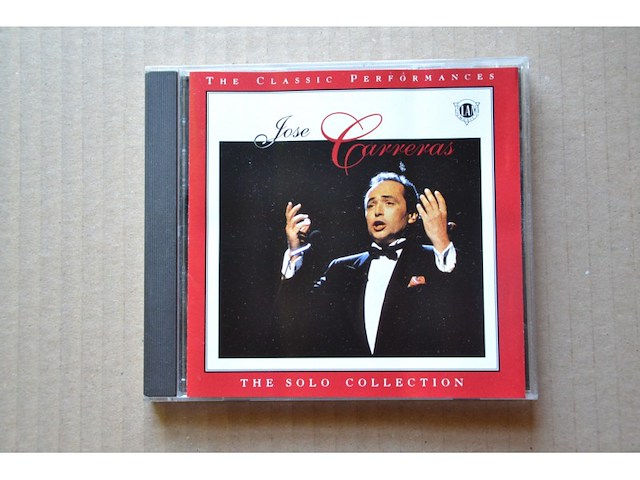
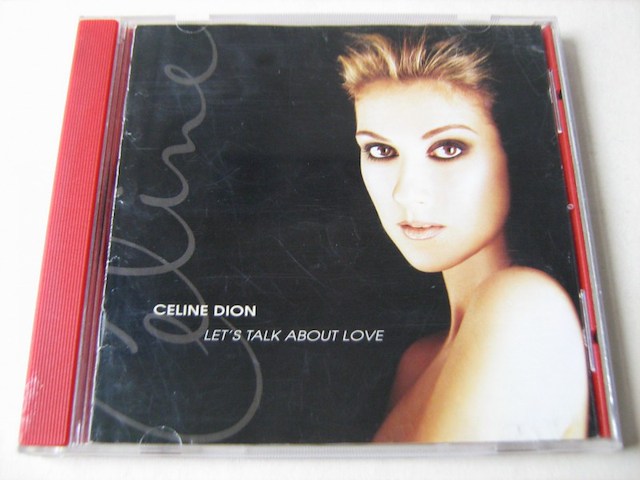
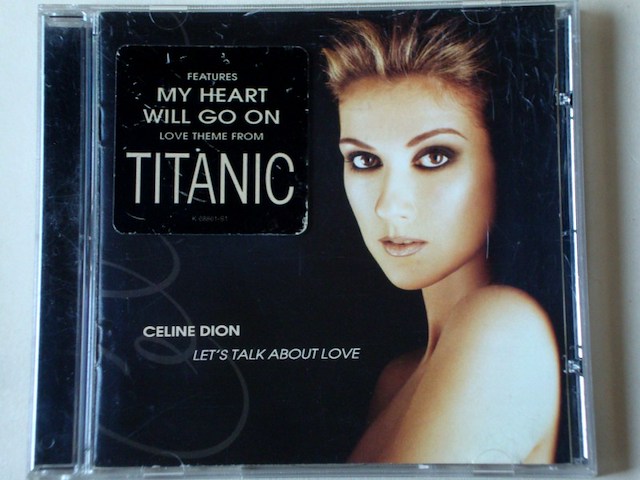
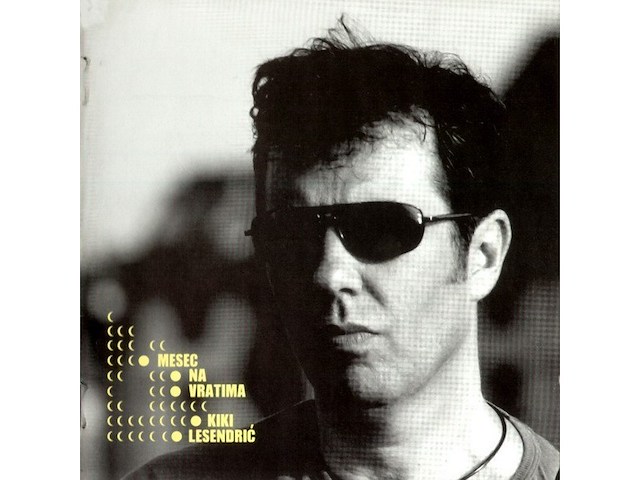

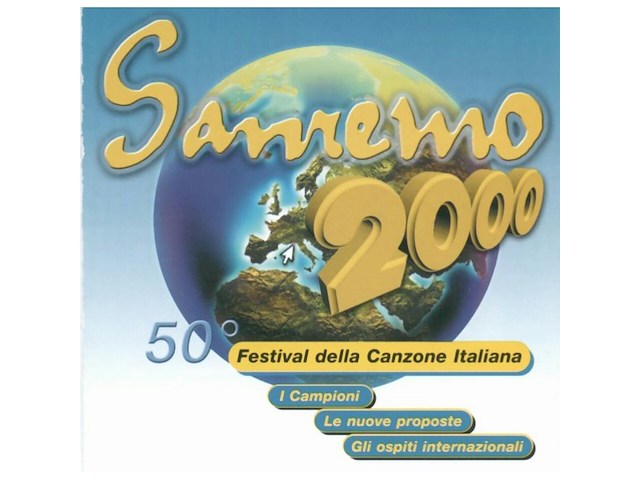
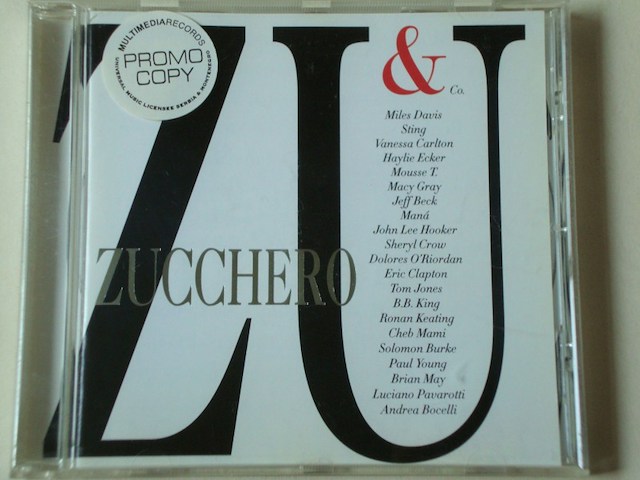
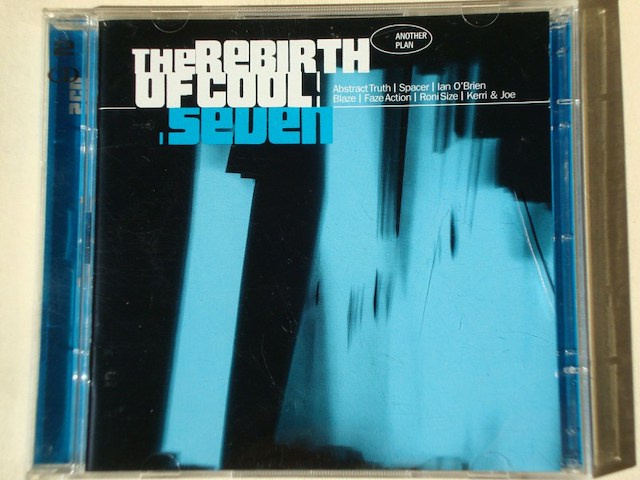
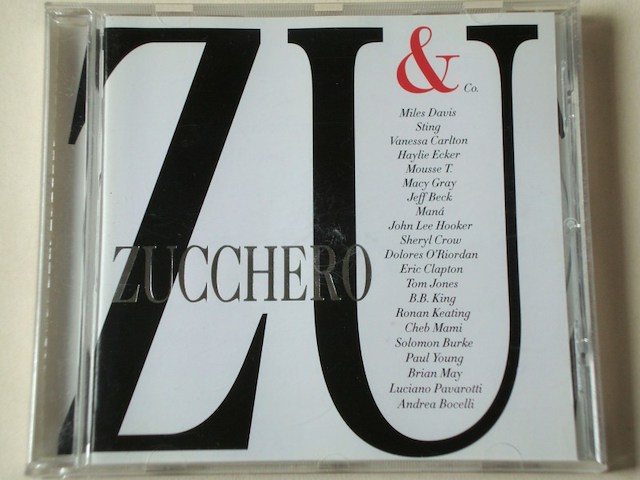
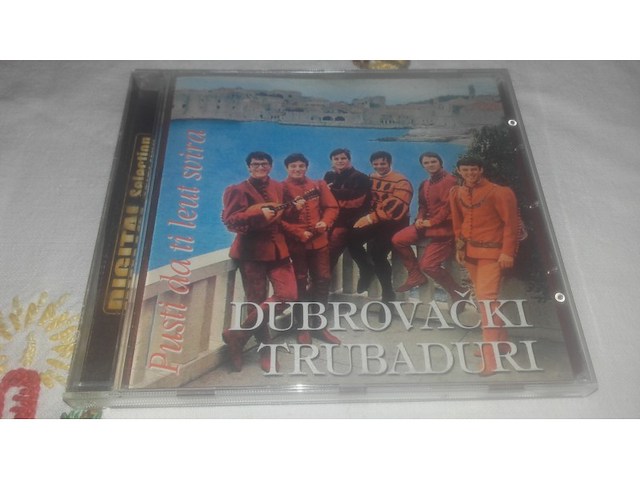
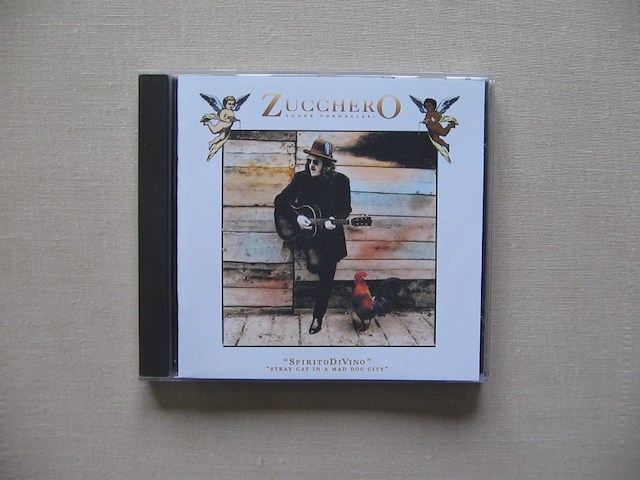
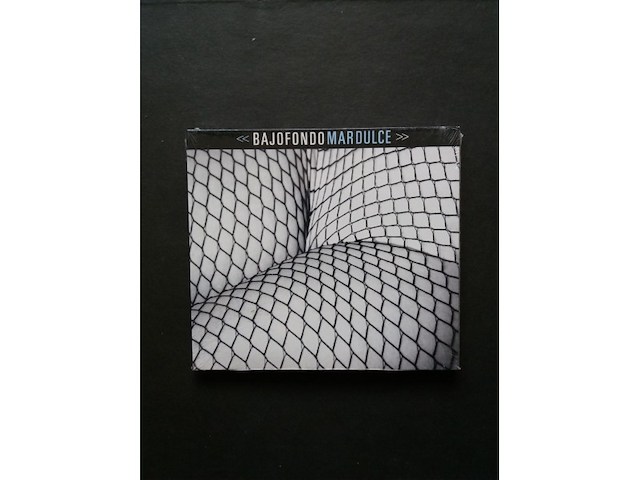
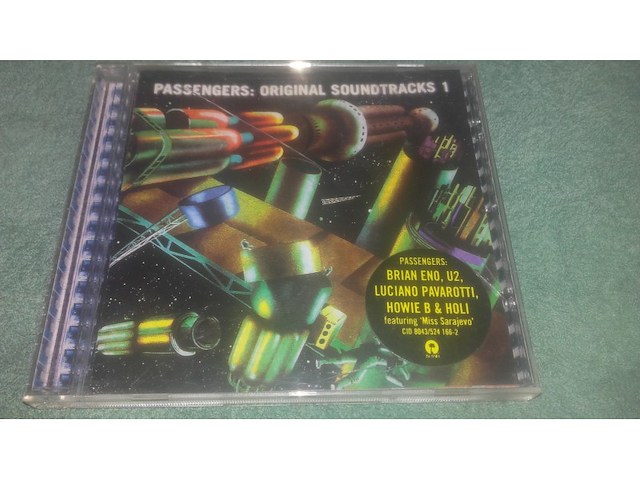
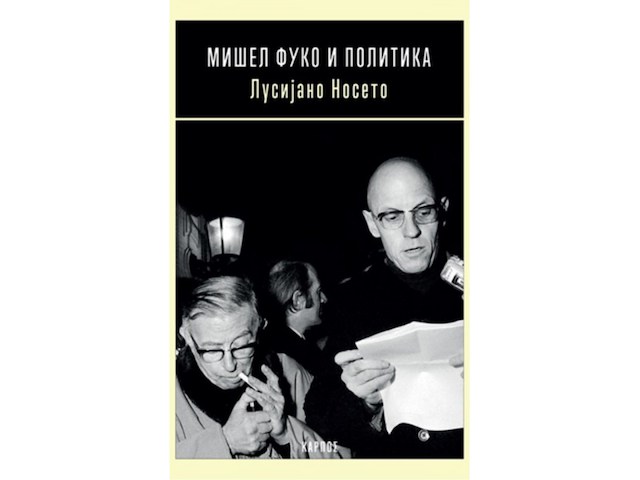
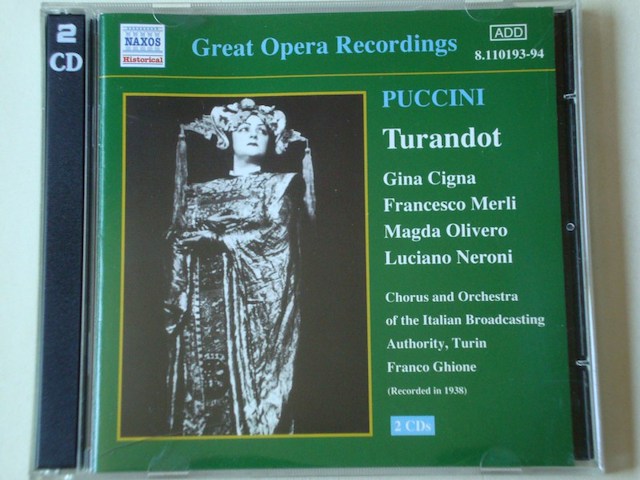
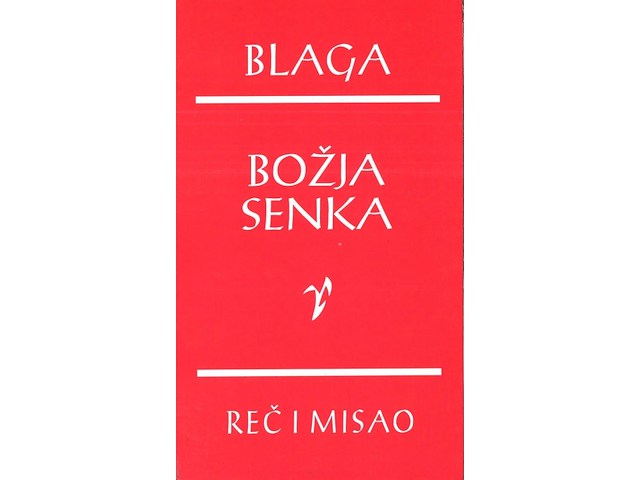
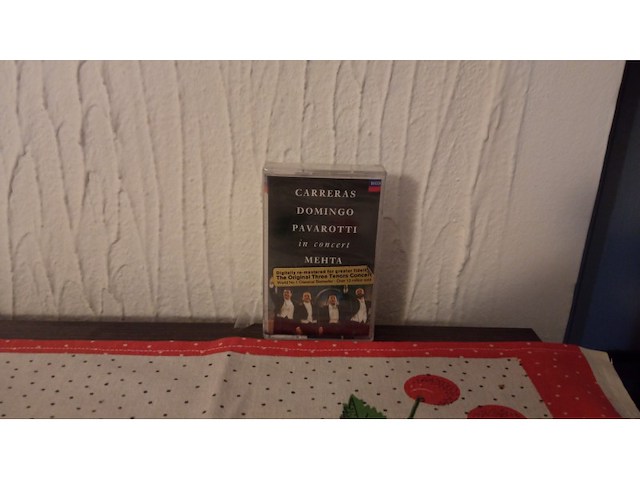
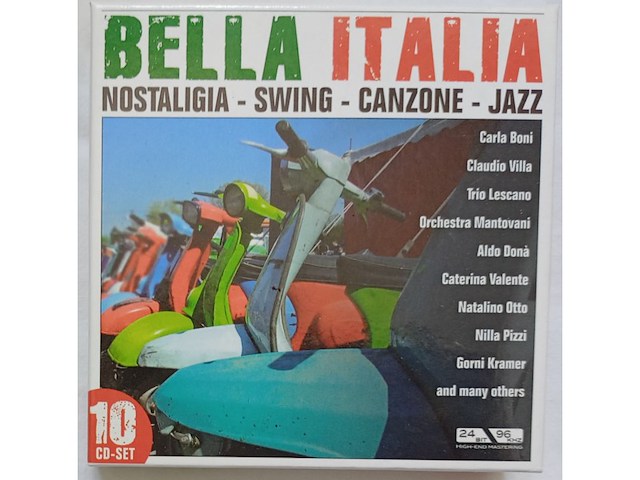
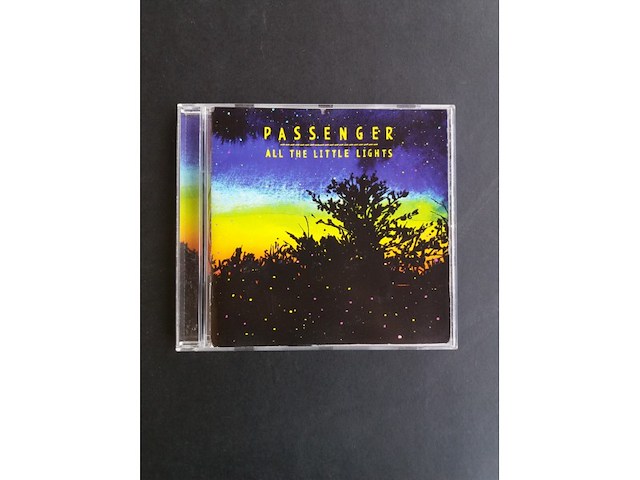
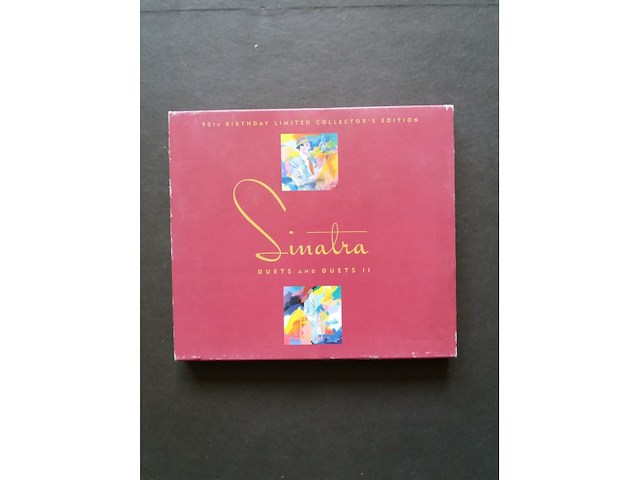
![Verdi - Don Carlo [3xCD, Box Set]](http://img.goglasi.com/img/258178474)
